PROGRAM
Lineup
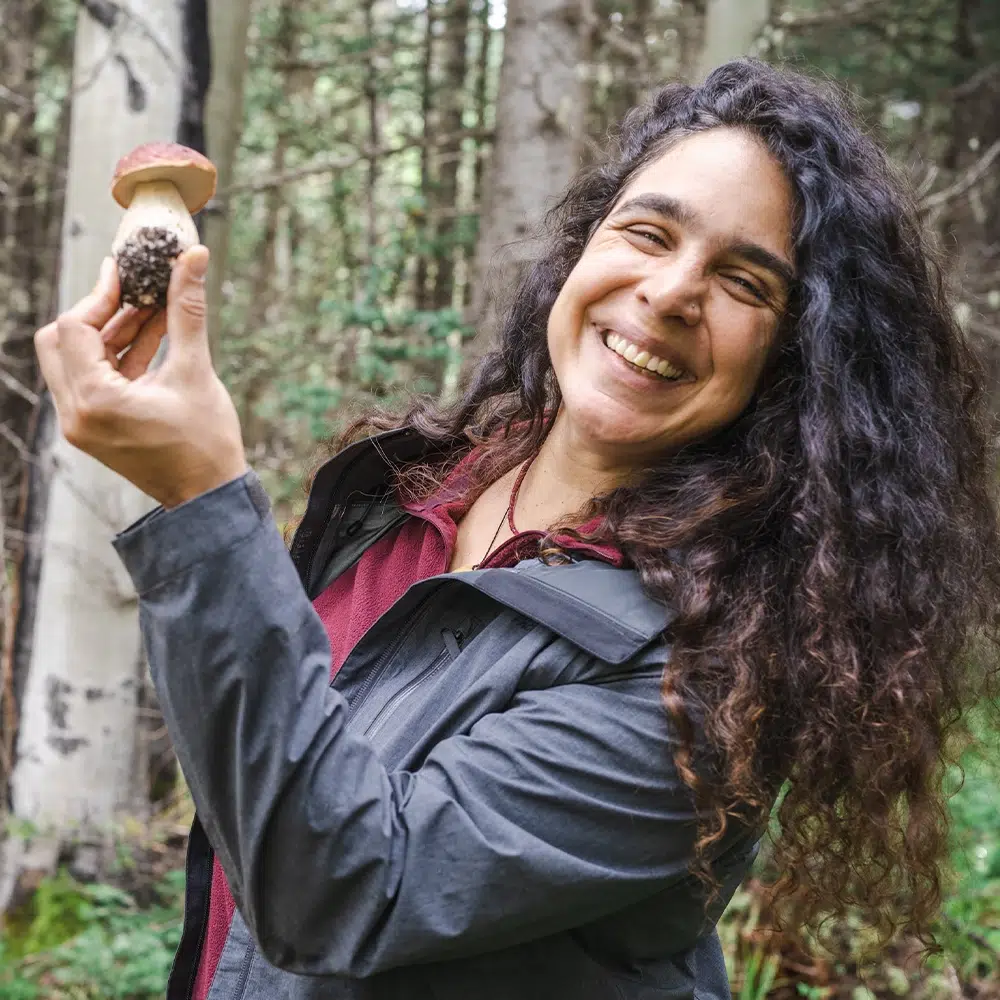
Lecture: Fauna, Flora, Funga: A Movement to Transform Biodiversity Conservation Laws
How can a global movement influence public policy? In this keynote, Giuliana Furci will share the journey from the inception of the Fauna, Flora, Funga (FFF) Proposal to its growing impact on the world's most significant legal frameworks, aiming to protect fungi at the same level as plants and animals are.
Join us to discover how this groundbreaking work is reshaping conservation efforts and paving the way for fungi to be legally recognized and protected as a vital part of our planet's biodiversity
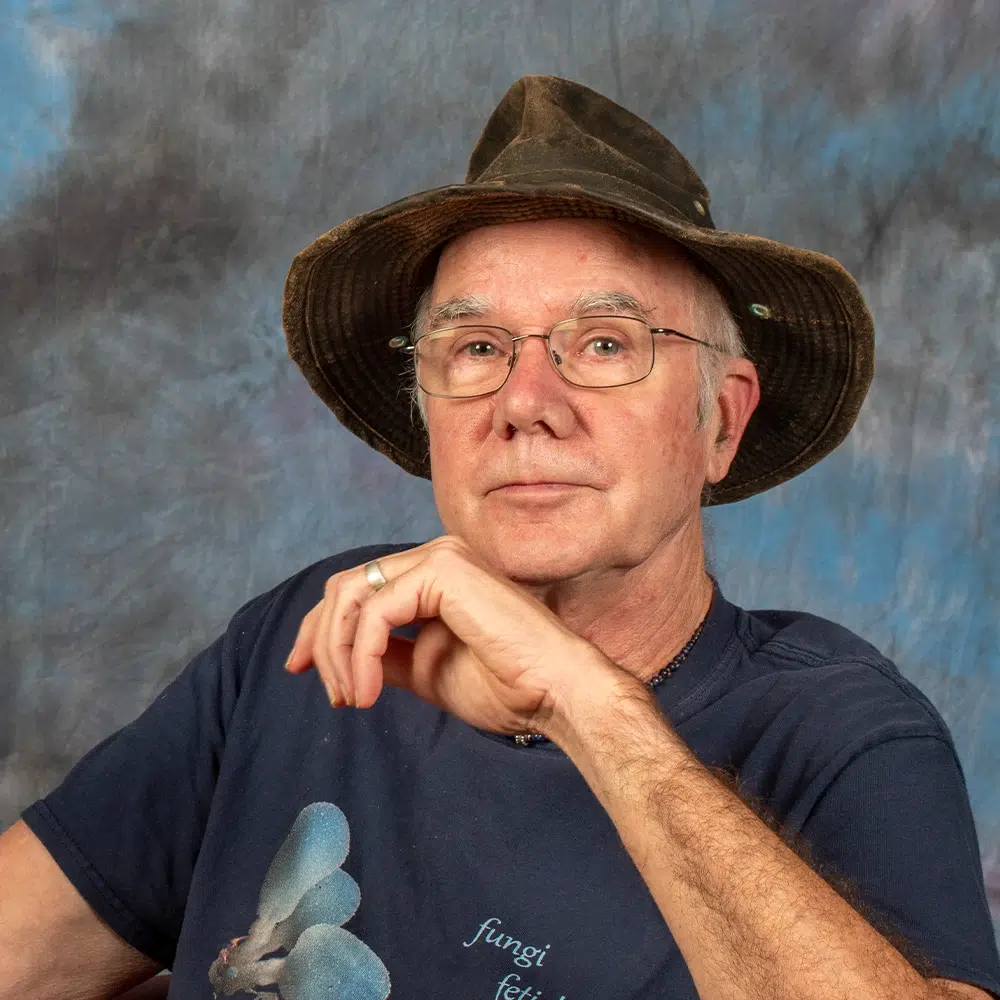
Lecture: Planet Fungi at Pilzfestspiele 2025
Step into the spellbinding world of fungi with Stephen Axford and Catherine Marciniak of Planet Fungi. In their main presentation, they'll take you on a journey through their global fungi safaris, from the misty highlands of Asia to the ancient woodlands of Africa. With stories of collaboration with international mycologists and breathtaking time-lapse footage, they'll reveal how their creative fusion of science, photography and film — what they call mycomedia — is transforming the way we see fungi and their importance in the web of life.
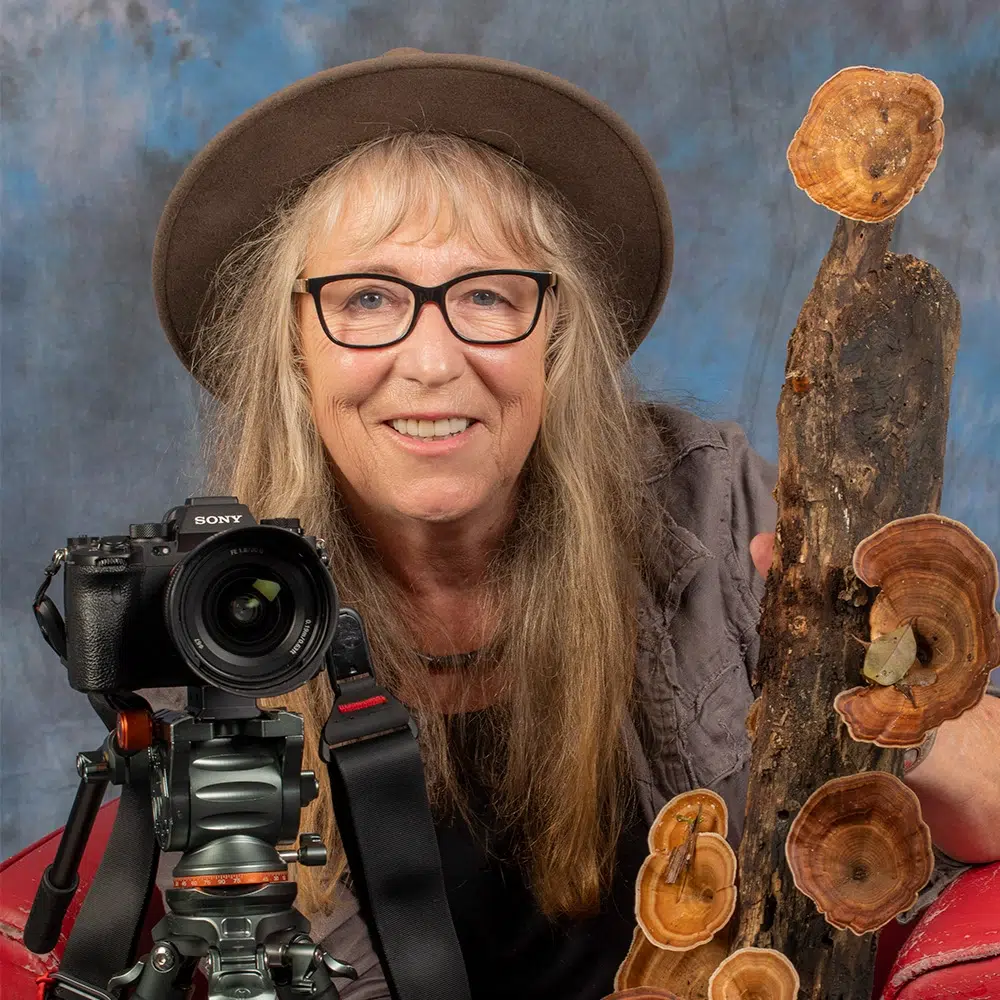
Lecture: Planet Fungi at Pilzfestspiele 2025
Step into the spellbinding world of fungi with Stephen Axford and Catherine Marciniak of Planet Fungi. In their main presentation, they'll take you on a journey through their global fungi safaris, from the misty highlands of Asia to the ancient woodlands of Africa. With stories of collaboration with international mycologists and breathtaking time-lapse footage, they'll reveal how their creative fusion of science, photography and film — what they call mycomedia — is transforming the way we see fungi and their importance in the web of life.
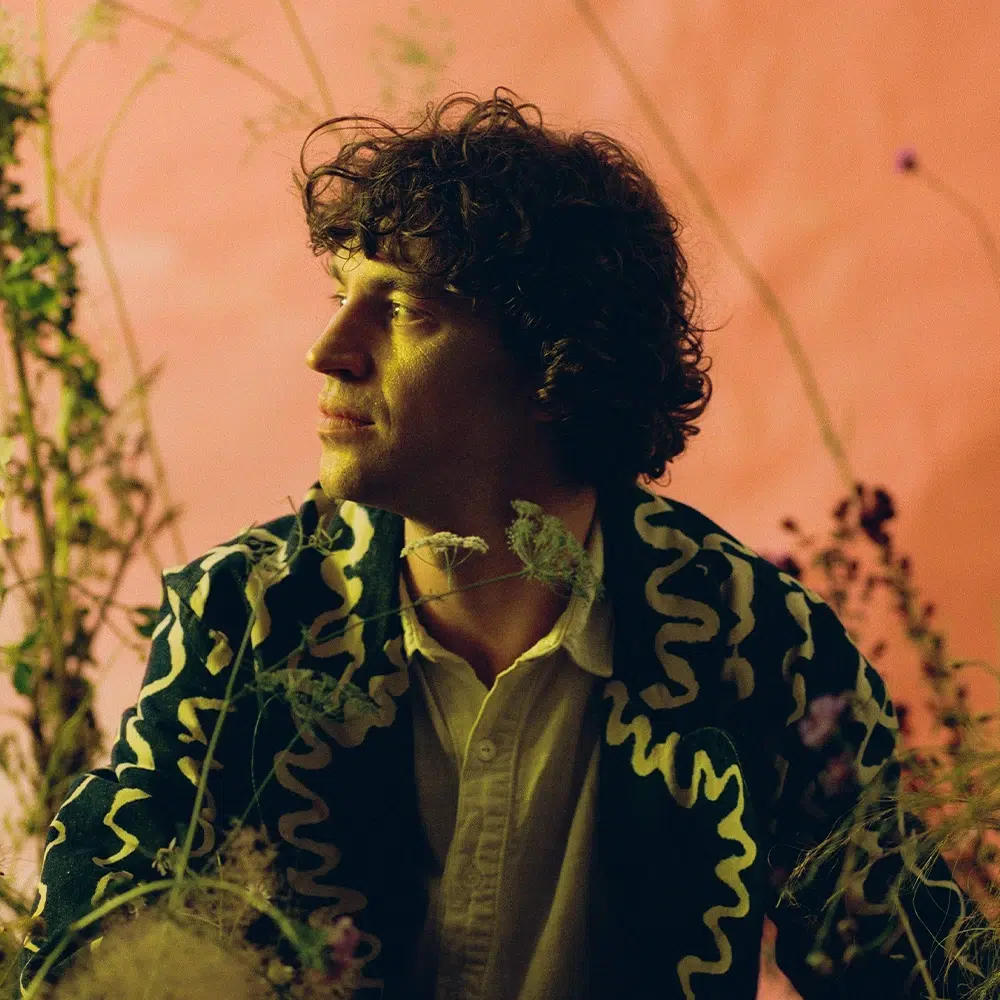
A week full of encounters, insights, and inspiration comes to an end – and we celebrate the conclusion of Pilzfestspiele 2025 with an evening that once again connects everything: sound, body, community, and the great wonder of the world.
British musician and sound researcher Cosmo Sheldrake joins the group, shaping his sounds from nature, voice, and instruments into something unique – playful, multi-layered, and deeply moving. His compositions draw on field recordings of birds, whales, frogs, and even mushrooms – and invite us not only to hear the world, but to feel it anew.
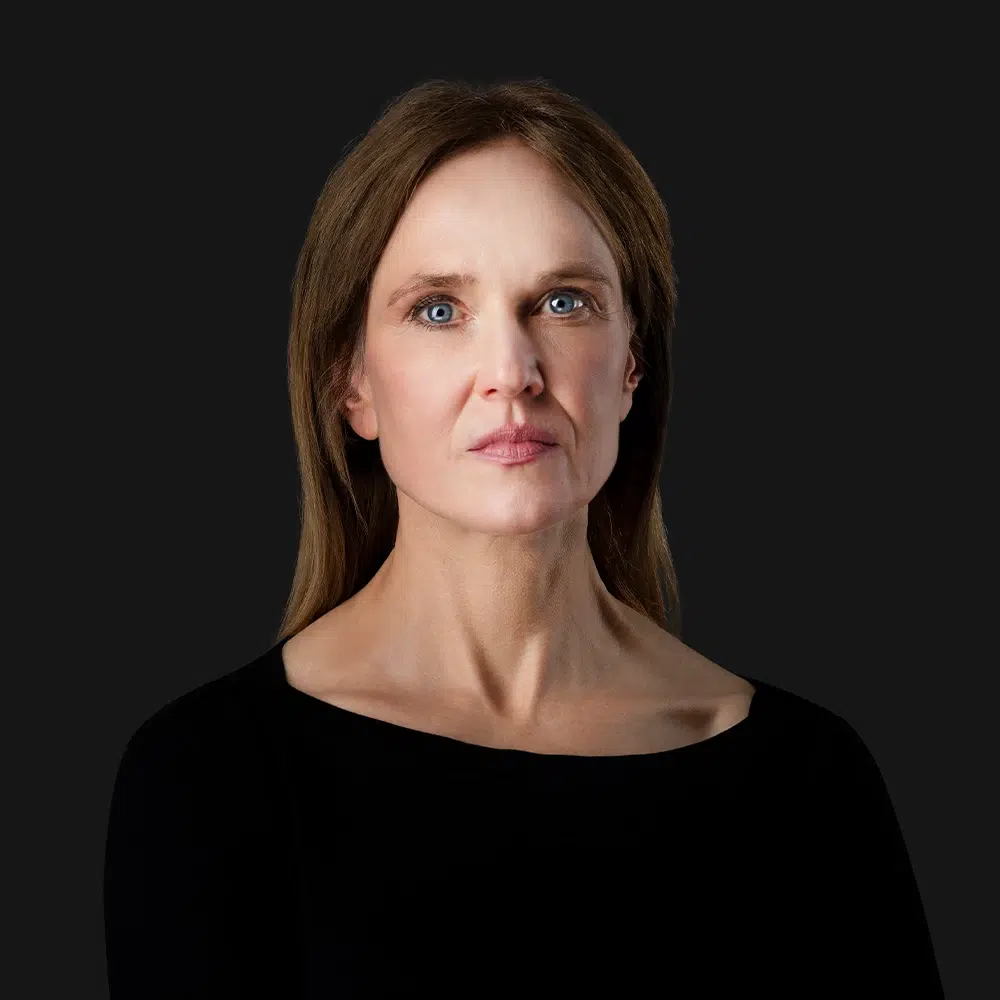
Lecture: Playing God – meddling with complexity
The connections between soils, land and people are more intricate than we can imagine—and yet human activities continue to unravel them through reductionist approaches to land use and restoration. As we try to “fix” what we've broken, we risk further damage by ignoring the deep complexity in soils. This talk explores the unintended consequences of these interventions and asks: what happens to ecosystems—and to us—when we lose the complexity of life underground?
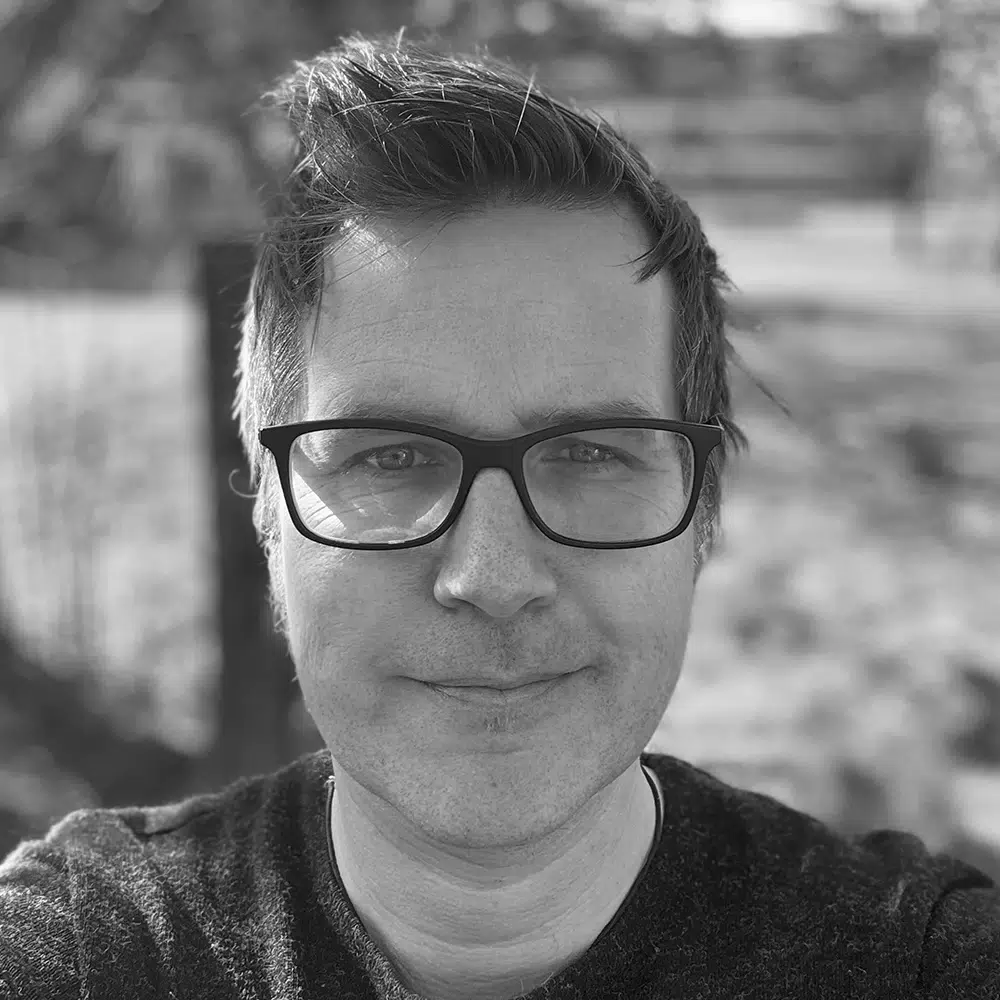
Lecture: The jungle beneath our feet – soil biodiversity, our civilization and what underwear has to do with it.
Soil forms the foundation of human civilization, and soil organisms drive the functioning of ecosystems. Soils produce 95% of our food, filter our water, and are the planet's largest recycler. They are home to more than half of the world's biodiversity. However, overdevelopment, erosion, pollution, and intensive cultivation are threatening soils worldwide. The citizen science project "Beweisstück Unterhose" (Underpants Evidence) was launched to highlight the importance of and threats to soils and to investigate the activity of soil organisms. 2,000 standardized pairs of cotton underpants were sent to over 1,000 citizen scientists from all over Switzerland. They buried the underpants in the ground, where they decomposed.
The underlying idea was that the greater the decomposition, the greater the soil health. Participants collected soil samples and entered location and management information into a specially developed app. After one and two months, the underpants were dug up, dried, and sent to the laboratory. There, the degree of decomposition of the underpants was determined and correlated with the location and management data. At the same time, all participants also buried tea bags to determine the Teabag Index (TBI), a scientifically established method for assessing soil decomposition processes. The results showed that management practices and soil properties were the most influential factors influencing soil biological activity. While underpants decomposed most in private gardens, the least occurred in lawns. Underpants and TBI were equally suitable as indicators of soil quality. However, underpants have the advantage of directly visualizing the activity of soil organisms. Furthermore, underpants are very effective in the media. The project attracted considerable media attention and made it possible to draw global attention to the importance of and threats to soils as the basis of our lives.
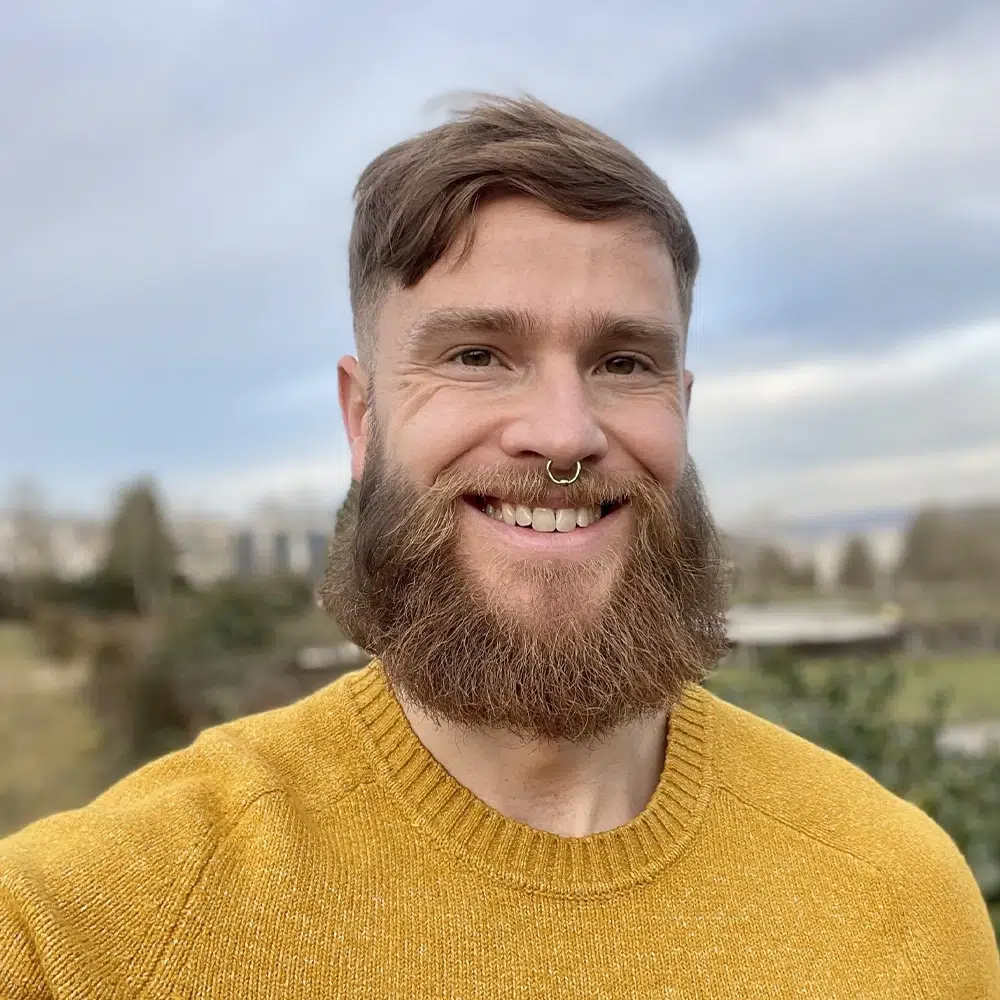
Lecture: Forest secrets and lab discoveries: how fungi drive plant growth
Marc Anthony is fungal ecologist at the University of Vienna and explores how fungi shape forest ecosystems. Using genomic tools, Mark studies the forest mycobiome—uncovering how fungal communities influence productivity, biodiversity, and carbon storage in our forests.
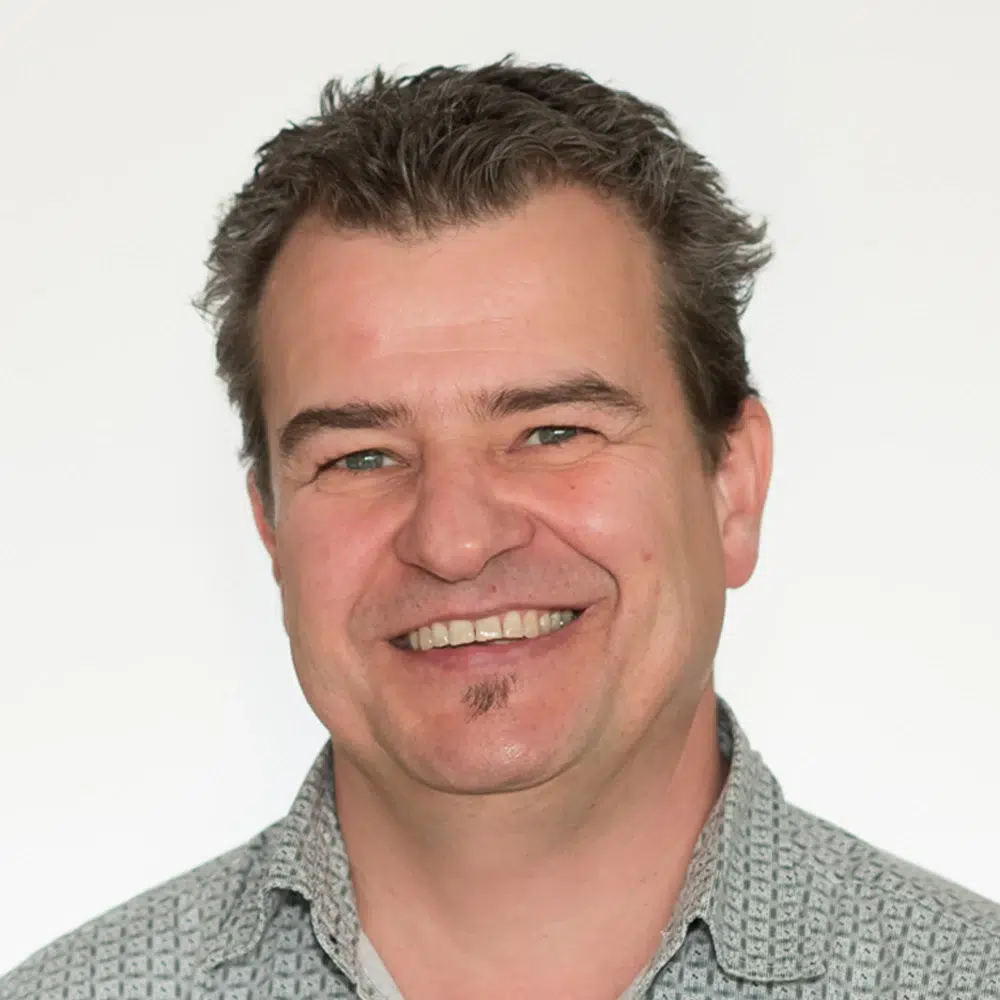
Lecture: Communication network and memory – an “epigenetic” dimension in the life of fungi
Joseph's research focuses on the molecular genetics and functional genomics of fungi—particularly molds and plant pathogens such as Fusarium. He investigates the role fungi play in the nitrogen cycle and how they produce bioactive compounds with potential applications.
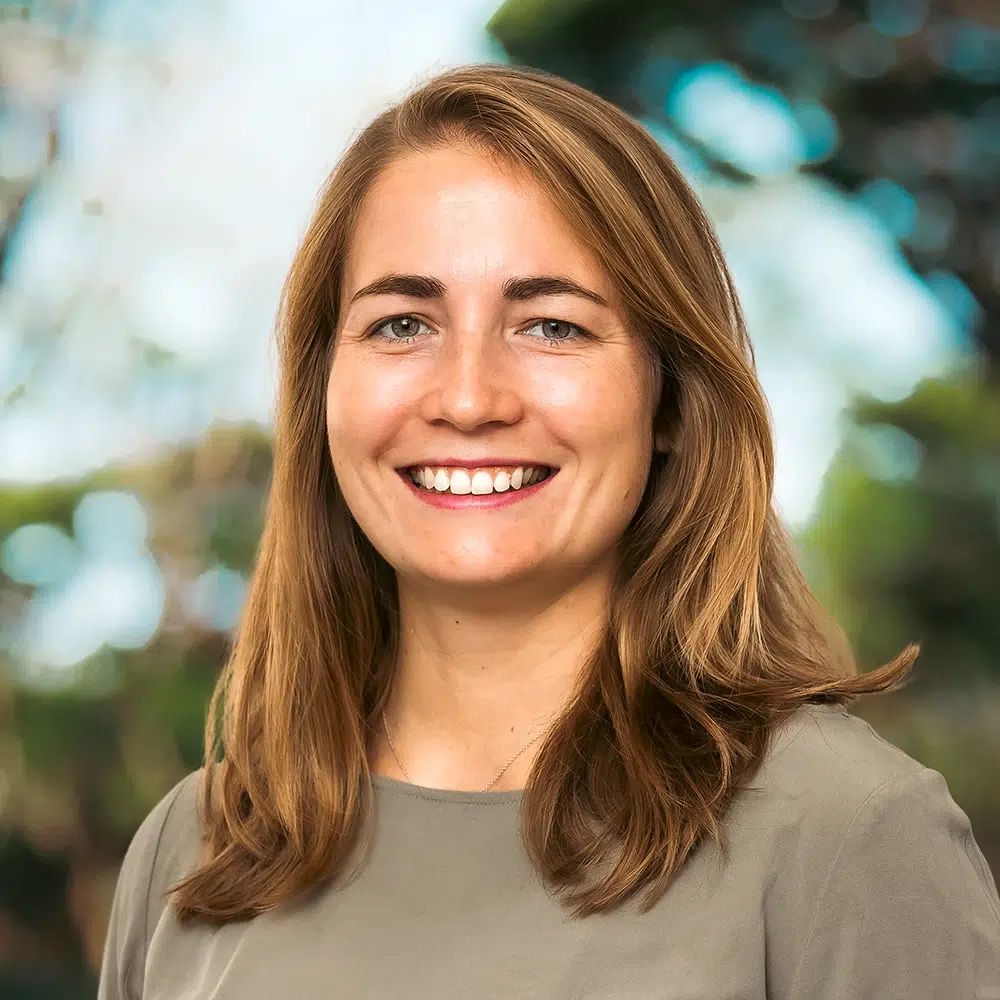
Miriam is a passionate biotechnologist with a particular interest in innovative sequencing technologies and bioinformatics data analysis. She is particularly fascinated by nanopore sequencing, which she successfully established as part of her master's thesis on plant systems at the Australian National University in Canberra.
During her doctoral studies at the Vienna University of Technology on the topic of "Cellular Signaling in Fungi," Miriam deepened her interest in fungi and their interactions with the environment. She conducted her practical work at the AIT Austrian Institute of Technology.
Today, Miriam brings her extensive expertise and passion for fungal research to bear as Head of Research and Development at MyPilz.
Photo: Lukas Hof
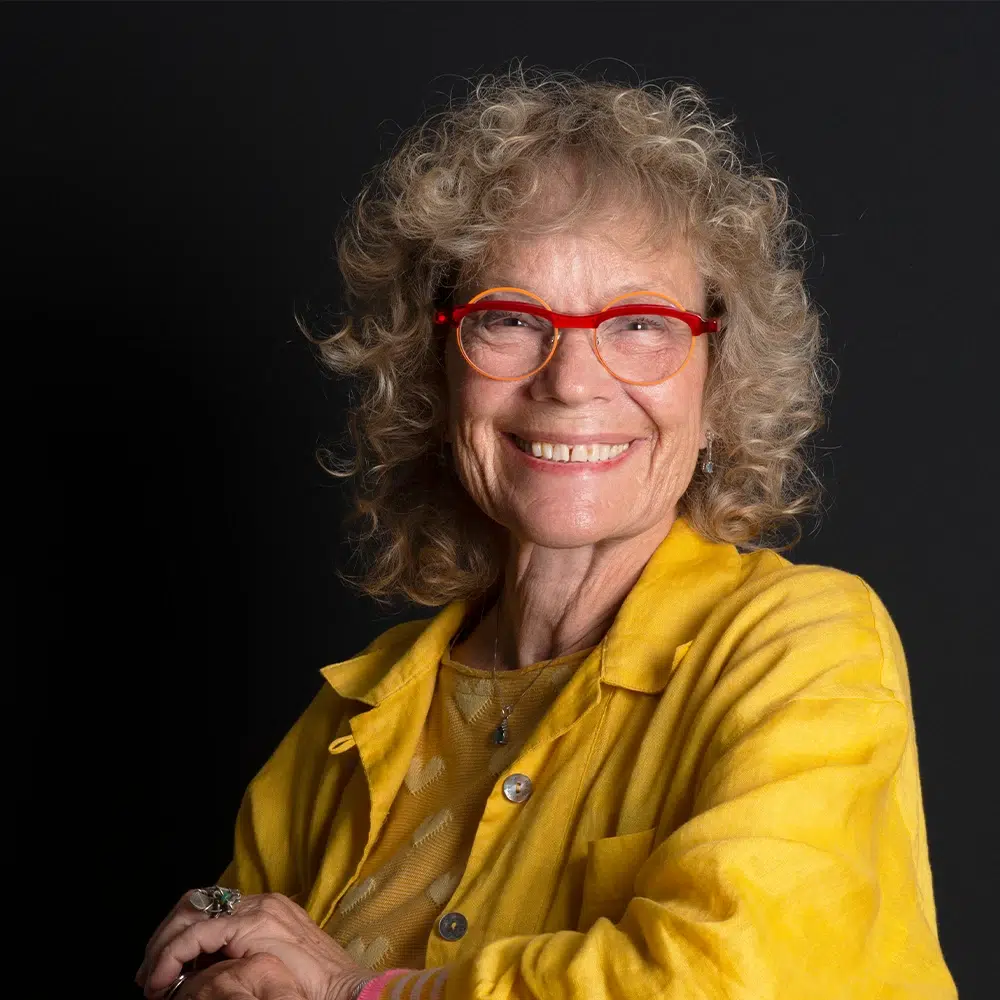
Lecture: How fungi can save the world, for climate, biodiversity, nutrition & health
Fungal enzymes can open the recalcitrant structures of lignocellulosic plant cell wall fibers. This makes it possible to convert what we now waste or underutilize crop residues and food processing side-streams to biobased materials and energy. Such biobased products can substitute for fossil-based products, hereby contributing to reducing emissions and mitigating climate change. But much more than these, plant residues can also be converted to animal feed (for pigs, chicken, fish). Now 78% of all arable land is used for animal feed. Making animal feed from residue leaves space for biodiversity, contributing to stopping biodiversity loss; and space for producing food for the soon 10 billion people. Even more: Fungi, fungal enzymes and fungal fermentations can be used to produce gut-health-promoting animal feed (=> significant reduction of antibiotics); as well as gut-health-promoting food, for improved public health (available, accessible and affordable as we currently waste/underutilize almost half of all produced (>20% side-streams & 34% food waste). Speeding up the transition to a more climate friendly plant-based diet, when it is not just plant-based, but plant & fungi based, adding the deliciousness of umami taste. Furthermore, fungal-based solutions can be achieved, eg for production of sustainable building materials (mycelium of wood degrading fungi, grown in fiber-rich plant residues for acoustics and beautification); for new architecture, for new design and arts; for new types of textiles and leather, made from fungal mycelium for drinking water from polluted water, for fungal-based batteries etc. This generates new jobs, stimulates business and socioeconomic development.
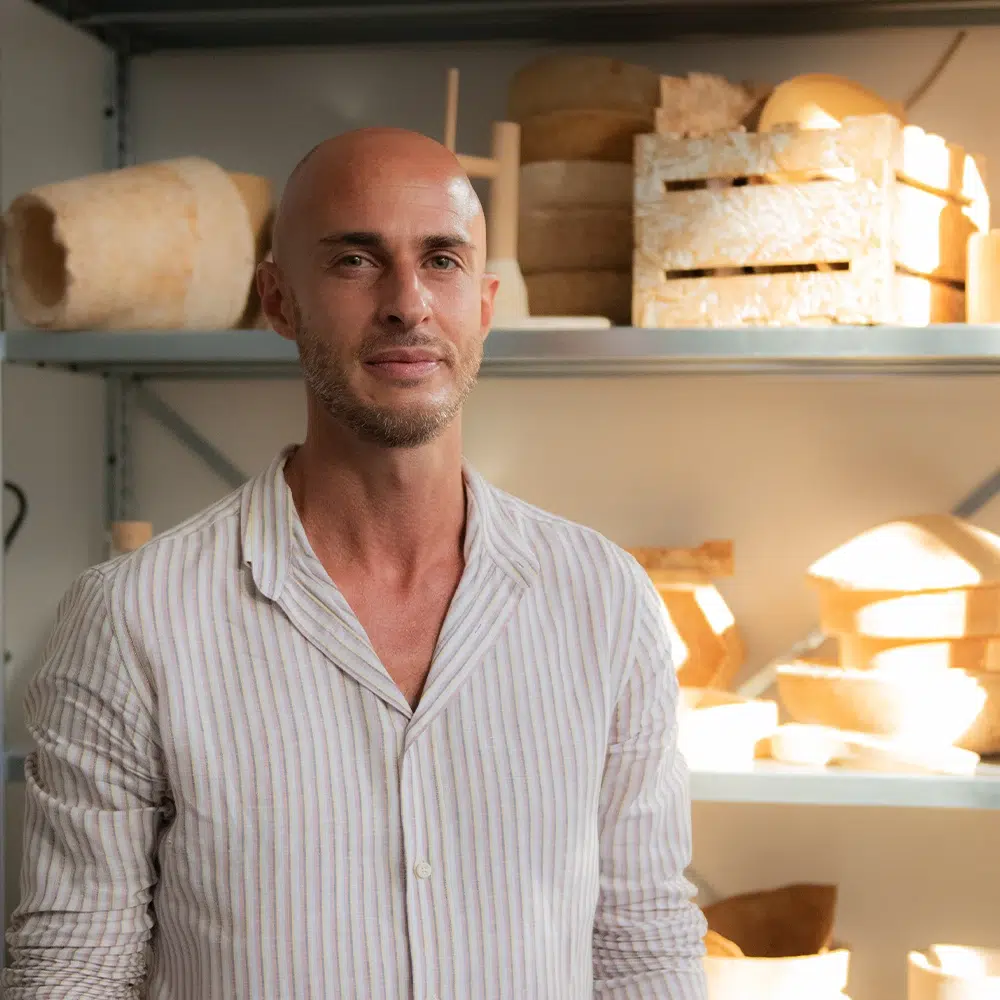
Lecture: GROWING DESIGN – THE NATURAL ALCHEMY OF BECOMING
Partnering with Funga to deliver a re-generative material culture
We live in a time of separation, from fellow humans as well as from Nature. The Anthropocene, as inevitable result of core factors such as mankind's activities and overall selfish behaviors, is dominantly impacting on climate, ecosystem and society at large, as we face major disruptions and challenges such as - to name few - the extinction of entire species, the loss of biodiversity, the depletion of natural resources, the incremental increase of global temperatures, increasing inequalities, perpetrated discriminations, etc. As part of this complex condition, one thing is for sure: the future isn't about erecting barriers, but it is rather about learning to come together, understanding our relationship to Nature and its many agents, deciphering their interconnected functioning and becoming once again pivotal part of it all.
Based on such context, the keynote presentation will function as space for inspiration, critical reflections, factual demonstrations, and collective creative production, encouraging the audience to actively engage in questioning dominant narratives and traditional production paradigms.
By diving into the kingdom of Fungi and unraveling some of the opportunities that emerge from processes of active entanglement and cooperation with such skilful teachers and companions, we will jointly explore how their very body – and the transitionally regenerative processes that fungal mycelium embodies and triggers – can support us in promoting a radical paradigm shift, leading to a revised notion of growth, as deriving from radical transformations rooted in sensorial encounters. Thus, contributing to positively impact both human and non-human societies, seeking balance between the role of the individual and the complexity of the relational ecosystem he's immersed in.
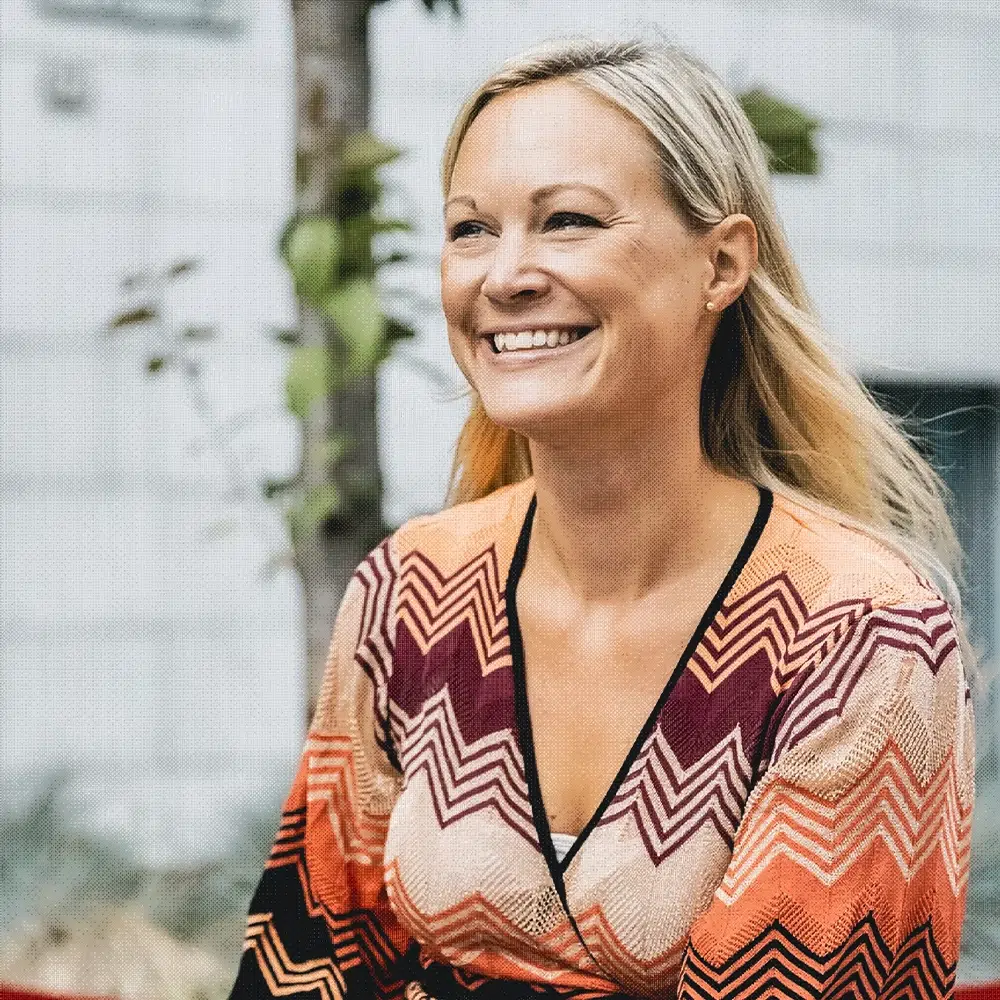
Lecture: The Future is Fungi – co-creating the next era of environmental innovations for humanity
With a background in sustainable finance and a deep passion for fungi, Susanne is building a global ecosystem for fungal innovation. She leads initiatives like “The Future is Fungi Award” and “The Fungi Investment Collective”, supporting frontier research and start-ups using fungi to solve major environmental challenges.
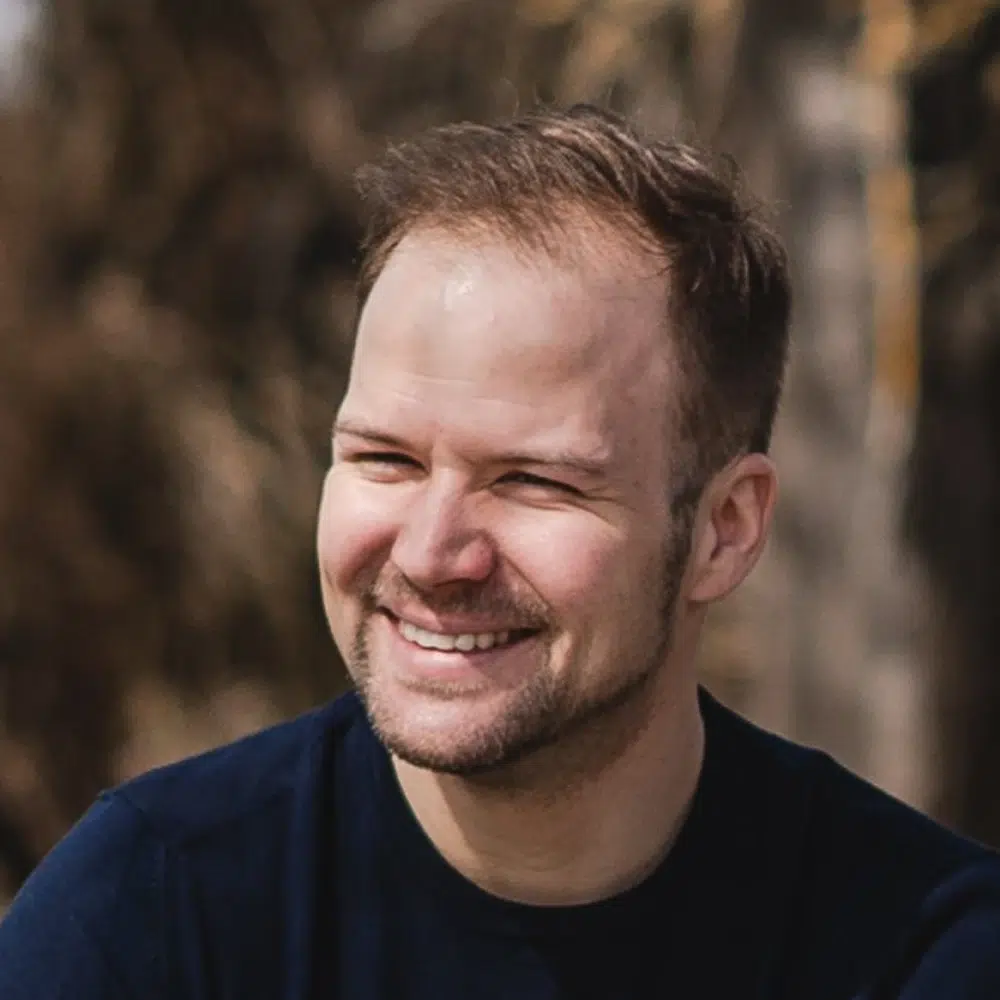
Thomas Neuburger is convinced that mushrooms are the key to sustainable enjoyment and the solution to global challenges. Under the HERMANN:BIO brand, he launches innovative products such as the Fungi Pad. As one of Europe's largest mushroom growers, he runs his company CO2-neutrally and sets new standards for a sustainable future.
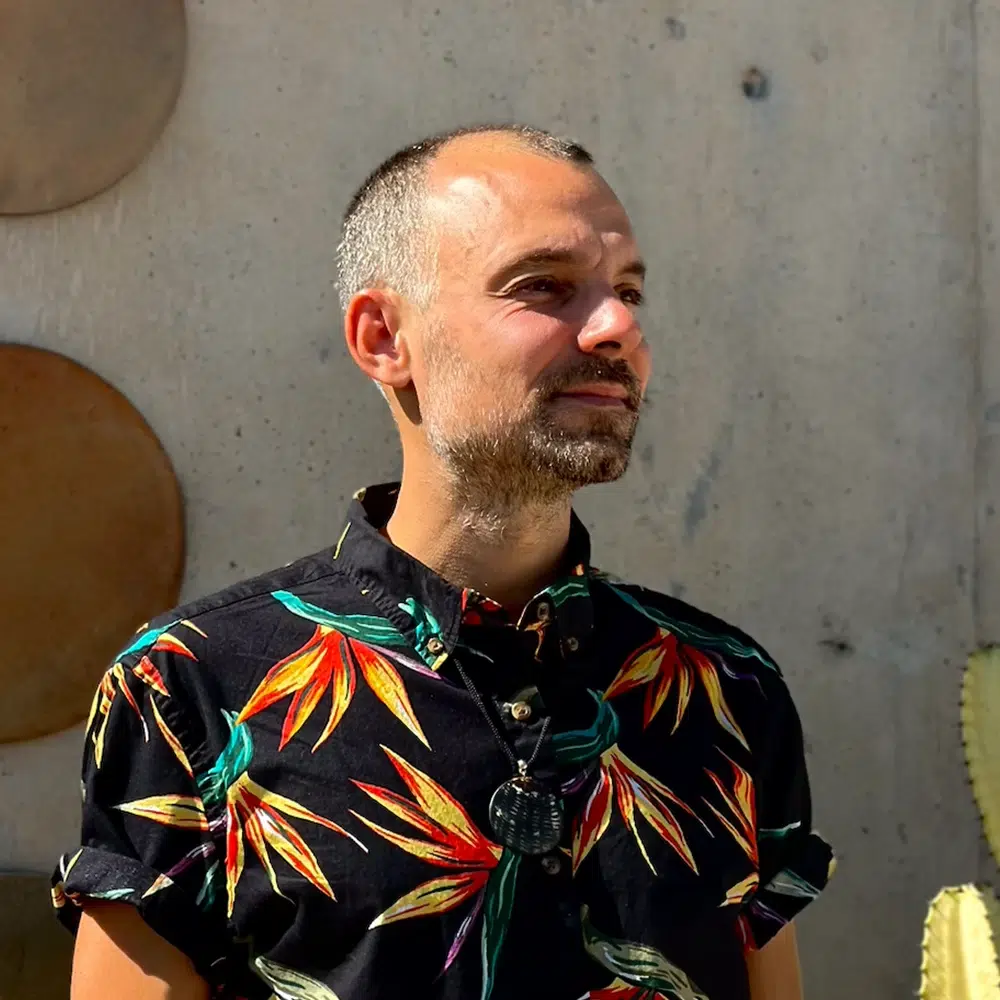
Lecture: The Future is Fungi: Can Fungal Innovations Transform our World for the Better?
When we talk about the future, fungi rarely takes center stage. Yet beneath our feet, in forests, labs, and fermentation tanks, the fungal kingdom is quietly reshaping our world. I'm Marc Violo, founder of MycoStories—an innovation platform helping pioneers turn fungi into practical solutions across food, materials, agriculture and health. Today, I invite you to explore a bold question: Can fungal innovations truly transform our world for the better? From fungi powered batteries to biodegradable diapers, this conversation unpacks what's already happening—and what's coming next. The future isn't written yet, but it'll surely be fungal.
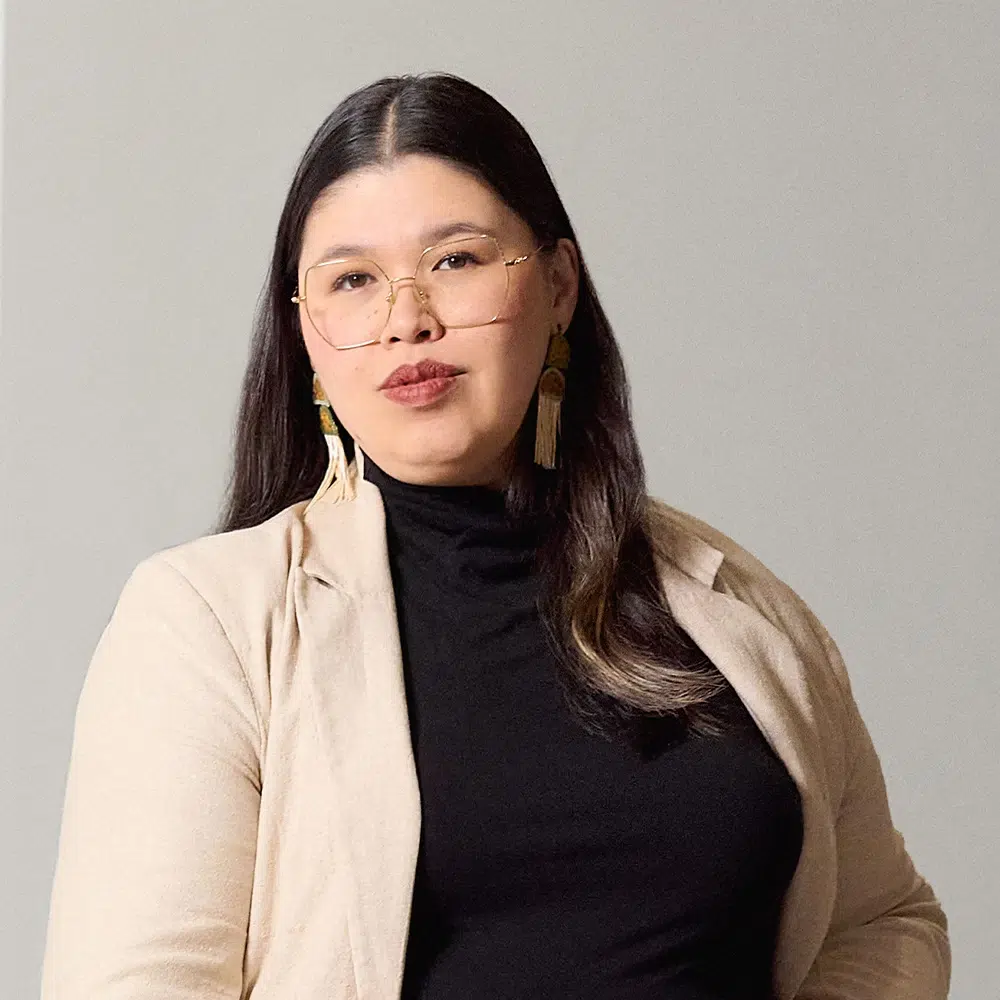
Lecture: Bio-Based to Brand Ready: Mycelium Materials for the Next Generation “Like fungi, startups grow in unexpected ways.
Join the founders of MycoFutures as they trace their path from a Newfoundland mushroom farm to a global biomaterial innovation company developing a mycelium-based leather alternative, with a mission to prove that prioritizing people and planet can also drive profit.
In this talk, they explore the ups and downs of building and scaling a circular startup, the value of storytelling and resilience, and the partnerships that helped them grow. With the launch of their first Austrian designer collaboration, they reflect on how the exciting intersection of science, business and sustainability is bringing new products to market. This talk offers a dual lens on running a business inspired by nature, with insights drawn from both the fungal world and the startup ecosystem.”
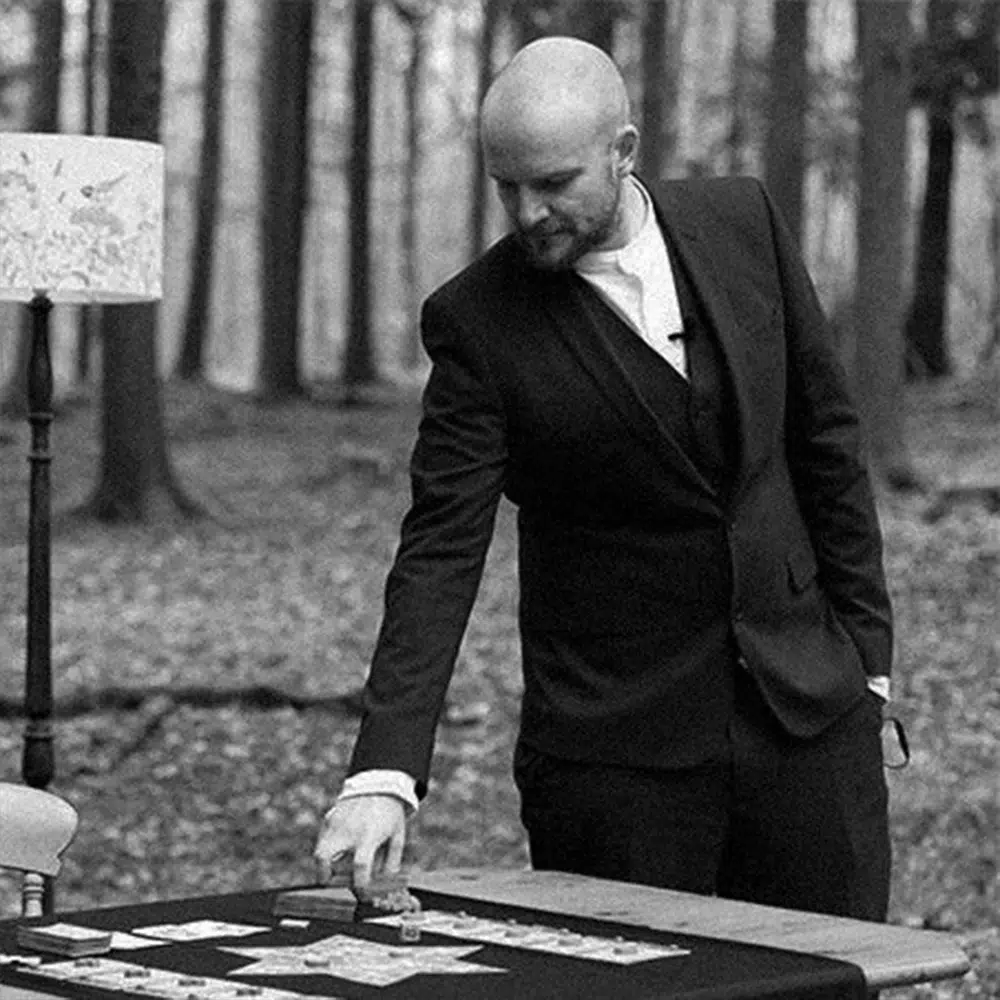
Lecture: Mycelia: How My Fungi Game Took Root and Grew
Jack Neville talks about turning passion into product – how fungi, art, design, game mechanics and strategy came together to build a board game that is both educational and fun!
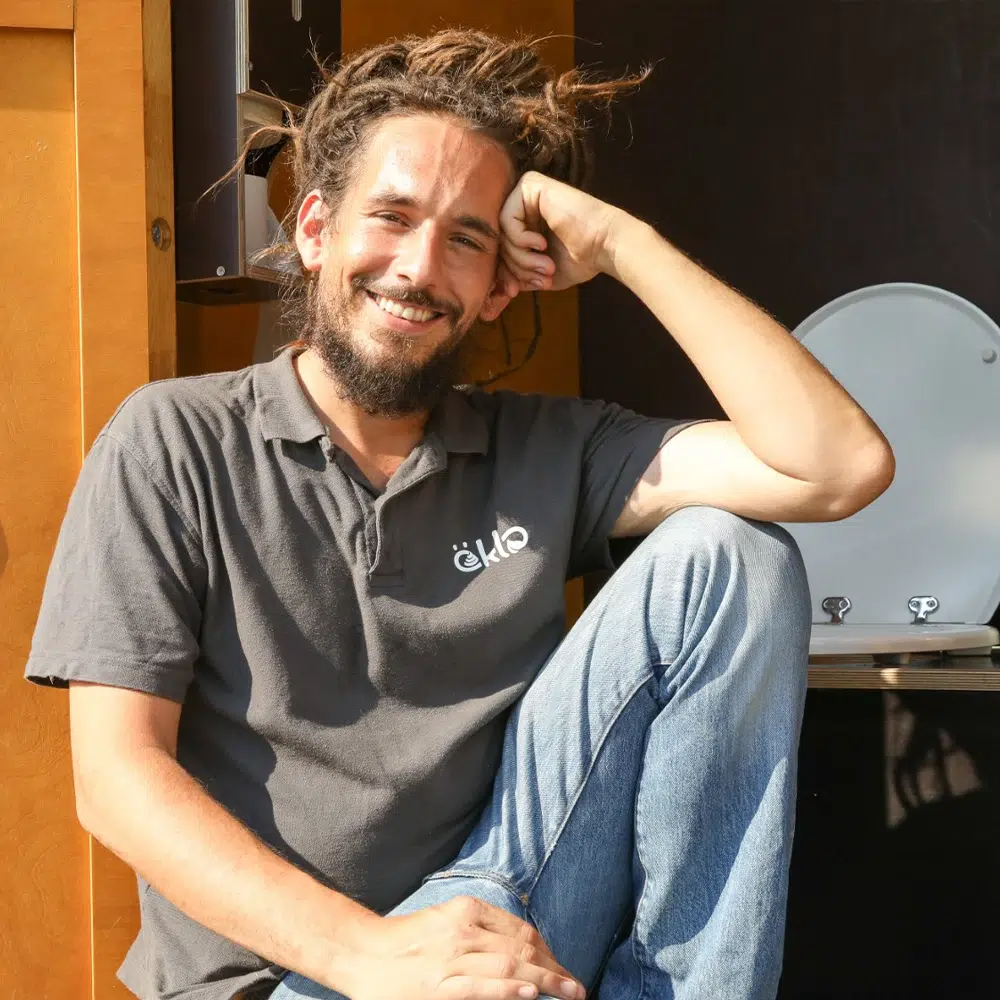
As the founder of öKlo, Niko is committed to dry solutions for a sustainable future. With his odorless composting toilet, he saves water, creates circularity, and kick-starts the sanitation revolution. His drive: to make the planet a better place.
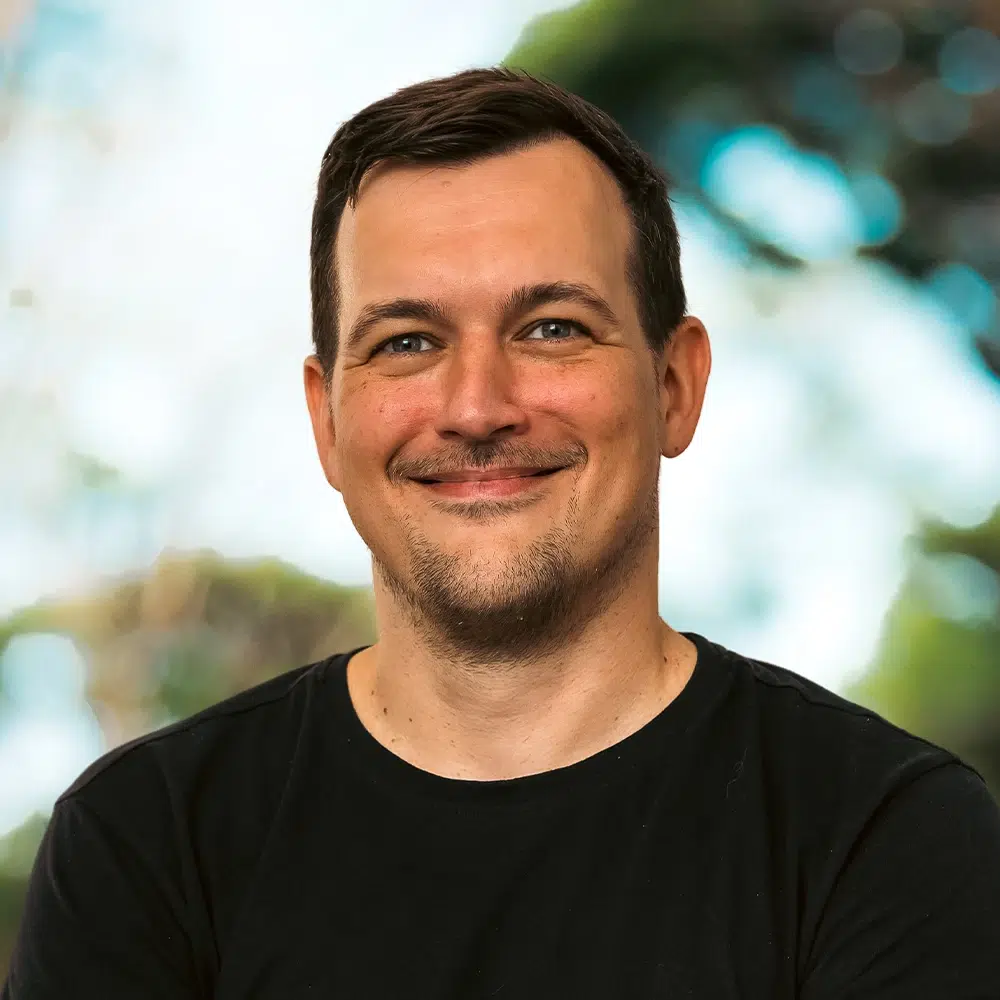
Wolfgang Hinterdobler is a passionate natural scientist and biotechnologist. His botany studies at the University of Vienna enabled Wolfgang to conduct research at the La Gamba Tropical Station in Costa Rica. There, he investigated the components of tropical fungi that live in symbiotic relationships with plants. Fascinated by the complex interactions between fungi and plants, he continued his work at the AIT Austrian Institute of Technology and earned his doctorate on the topic of "Chemical Communication of Fungi" at the Vienna University of Technology.
Wolfgang aims to use this expertise to develop and implement sustainable and resource-efficient projects. By founding MyPilz, he's turned a lifelong fascination into a career.
Photo: Lukas Hof
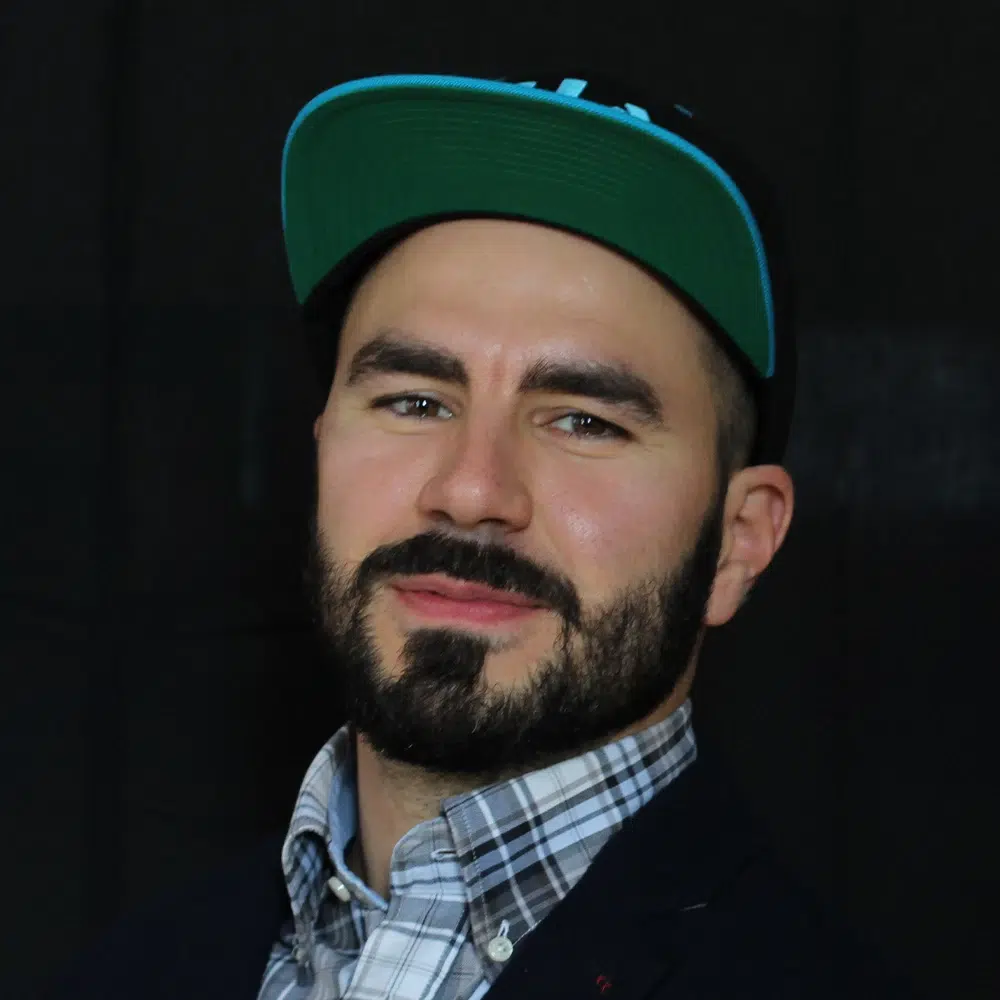
Lecture: Mushrooms, soil and health in school lessons
How can complex ecological relationships such as soil health and fungal diversity be meaningfully and effectively integrated into school curriculums? Ulrich Hobusch, a lecturer at the University of Applied Sciences for Agricultural and Environmental Education, addresses this question in his lecture.
He will present the "One Health Teaching Clinic" project – an initiative that aims to make socially relevant scientific topics tangible and accessible. The focus is on new didactic approaches that allow topics such as fungi, soil, and health to be integrated into classrooms in a lively way.
In addition, two student groups from Graz and Münster will report on their specific educational project. As part of a seminar, they planned, implemented, and supervised a school intervention on the topic of "Mushrooms & Soil Health" – including small research sessions in the classroom.
In this lecture, they share their concepts, materials, and results – and show how science, teaching, and social impact can be interwoven.
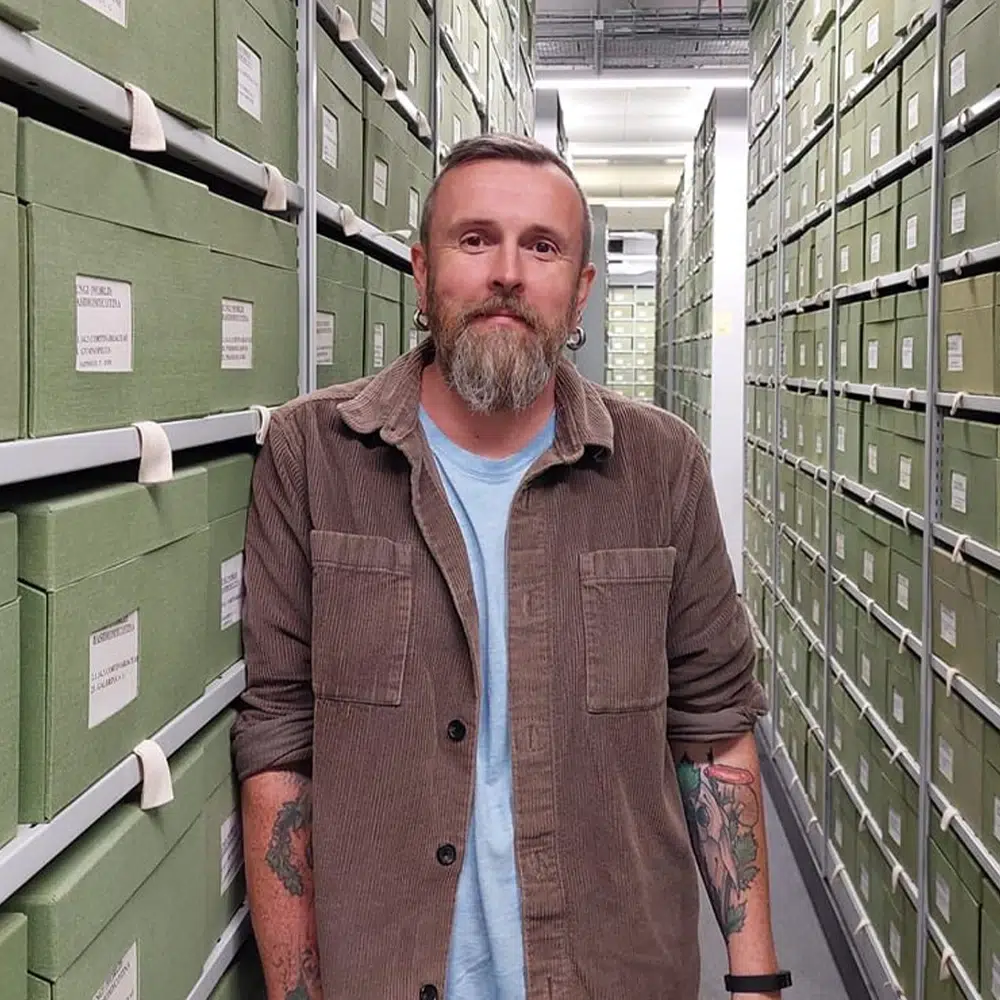
Lecture: A 21st Century Fungarium
The Kew Fungarium has over a million specimens spanning 200 years. Time, taxonomy, and techniques may have changed, but every one of those specimens is as valuable today as it was when originally collected. Hear how the Fungarium grows, how it is used, and how it will be used long into the future.
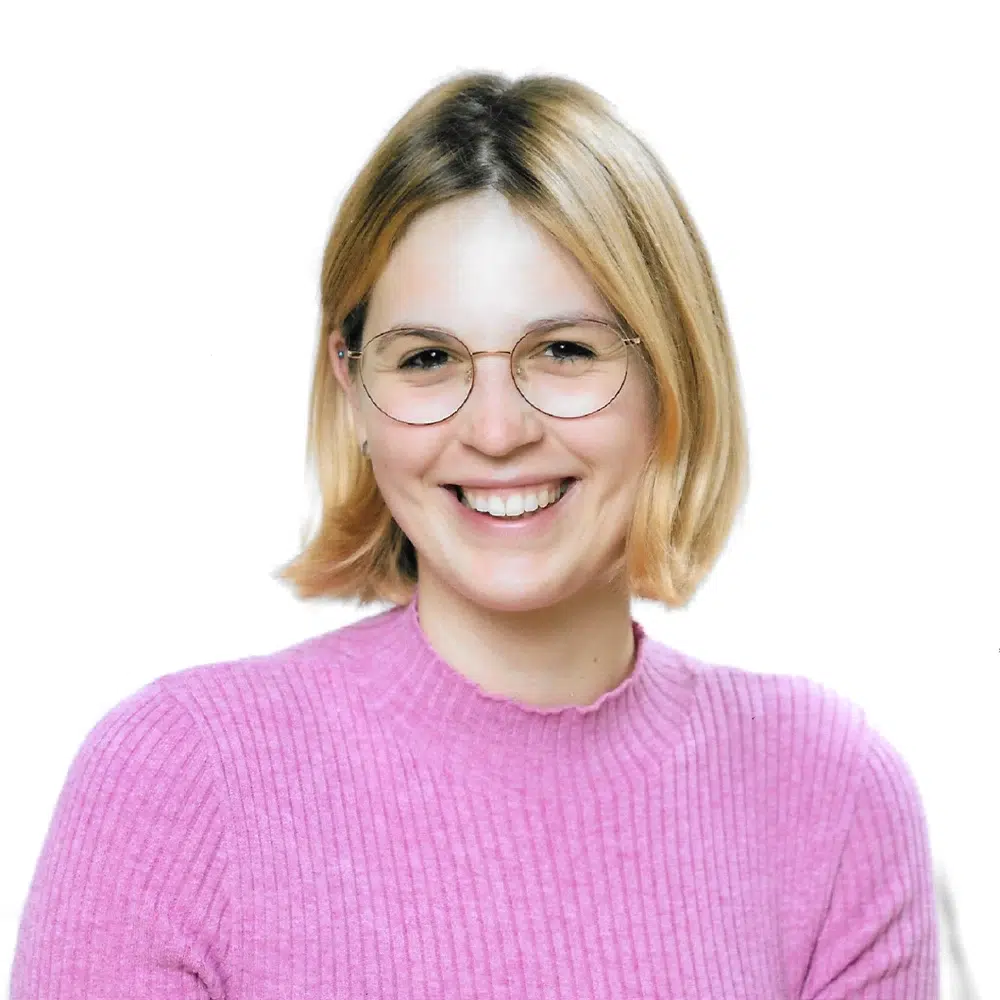
Lecture: Learning with Beneficial Organisms – Insights from Practice
How can you foster ecological awareness with young children and inspire them to appreciate the hidden helpers in the soil and garden? Katharina Bauer, a teacher at the Practical Elementary School of the University of Education Lower Austria and ÖKOLOG coordinator, shares her practical experience.
As part of a project with "Find Your Beneficial Insect," she worked with elementary school children on a playful exploration of beneficial insects—from observation and creative approaches to collaborative reflection. She shares how the process was designed, which methods worked particularly well, and what she learned from the project.
A short presentation full of concrete experiences, honest learnings and valuable tips for everyone who wants to make environmental education in schools lively, relevant to everyday life and effective.
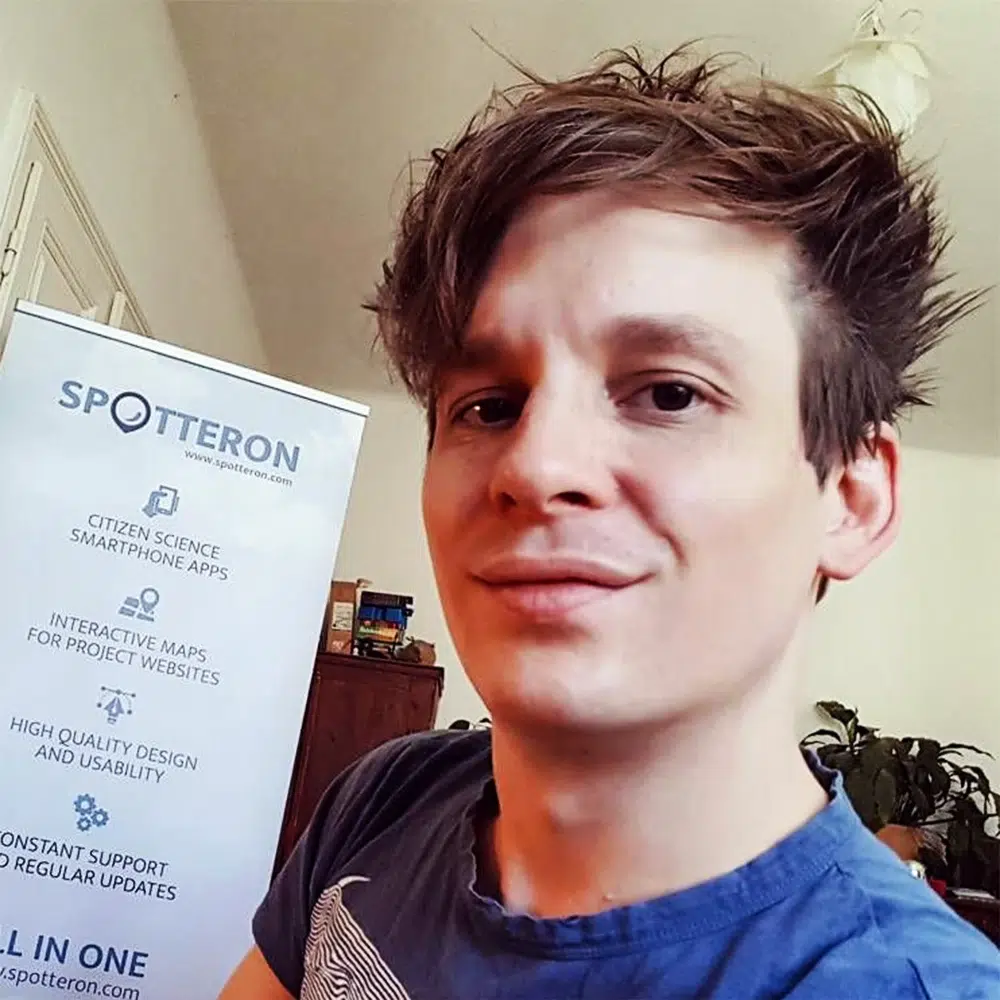
Lecture: SPOTTERON and the Mushroom Finder App – an interactive platform for citizen science and mycological observations
The SPOTTERON Citizen Science & Monitoring App Platform (www.spotteron.net) enables people to directly participate in scientific and NGO projects using interactive smartphone apps. In the Pilzfinder app, which runs on SPOTTERON, participants can contribute mushroom finds to maps, collect them digitally, and exchange ideas with the user community. Philipp Hummer introduces the Pilzfinder app and the SPOTTERON platform, and presents the collaboration between society and science, as well as the interactive science communication within the project. More about the app & downloads to get involved: https://www.spotteron.net/de/citizen science-apps/globale-community-science-projekte/pilzfinder-mykologie-app
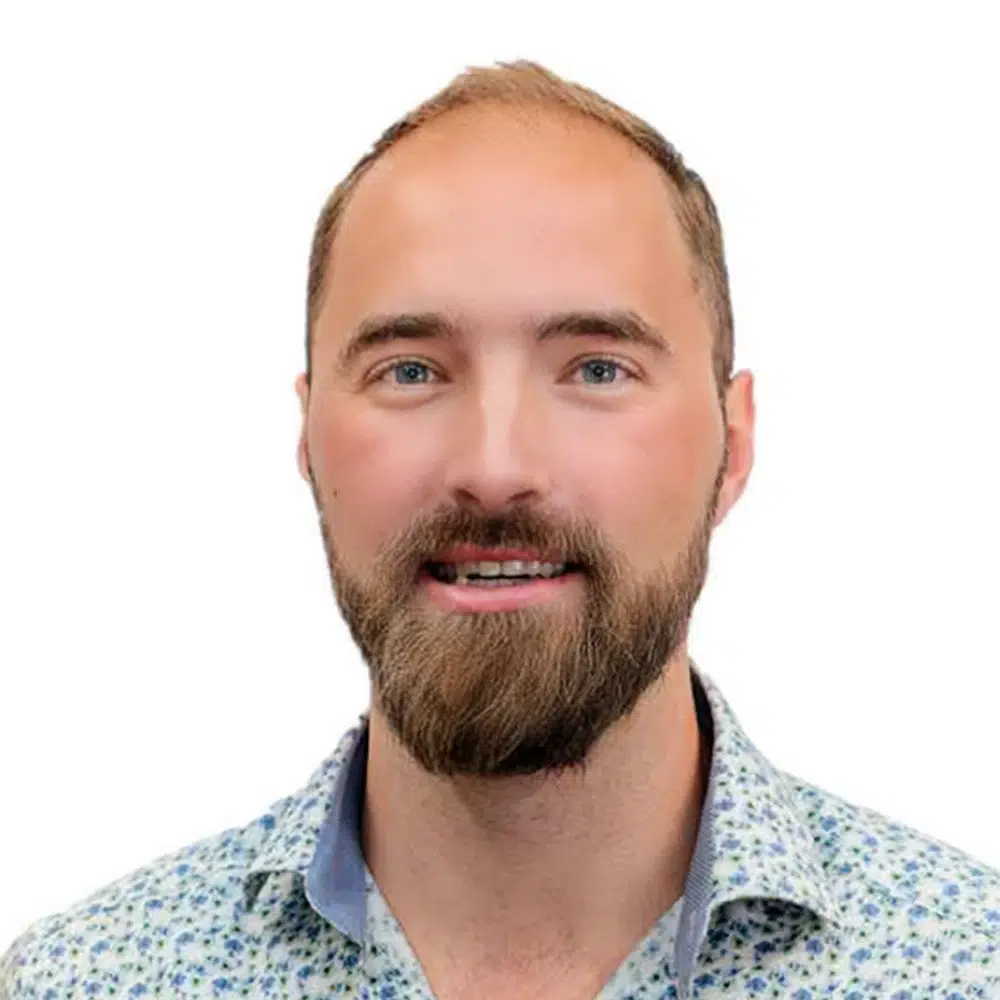
Lecture: Growing Mushrooms. Marketing Products. Learning for the Future. – Practical Training at HBLA Sitzenberg
New project at HBLA Sitzenberg: Mushroom cultivation on the next level!
The first mushroom cultivation projects have been underway for three years now. These involve propagating the mycelium itself across disciplines, as well as felling and inoculating tree trunks in practical classes. The mushrooms are then processed in the kitchen. Since working with mushrooms is very interesting and fits well with our school's product management focus, as well as expanding the product range of the school's own market garden, a mushroom cultivation container went into operation in mid-February 2025. Initially, oyster mushrooms and king oyster mushrooms are being grown, but batches of shiitake mushrooms, hedgehog mushrooms, and other delicacies are also planned.
Since the entire teaching operation is organically managed, the mushrooms also grow on organically certified substrate from Lower Austria. The founder and managing director of MyPilz, René Lux, gave us the idea for the container when he was giving lectures at the HBLA Sitzenberg and we were discussing our mushroom farm and expanding it. Through the project, the young people learn not only the basics of mushroom cultivation but also the importance of regional and resource-efficient food production. The first harvests were plentiful and sold like hot cakes – in the dining hall and through direct marketing.
We are already looking forward to many more delicious dishes and products with our home-grown mushrooms!
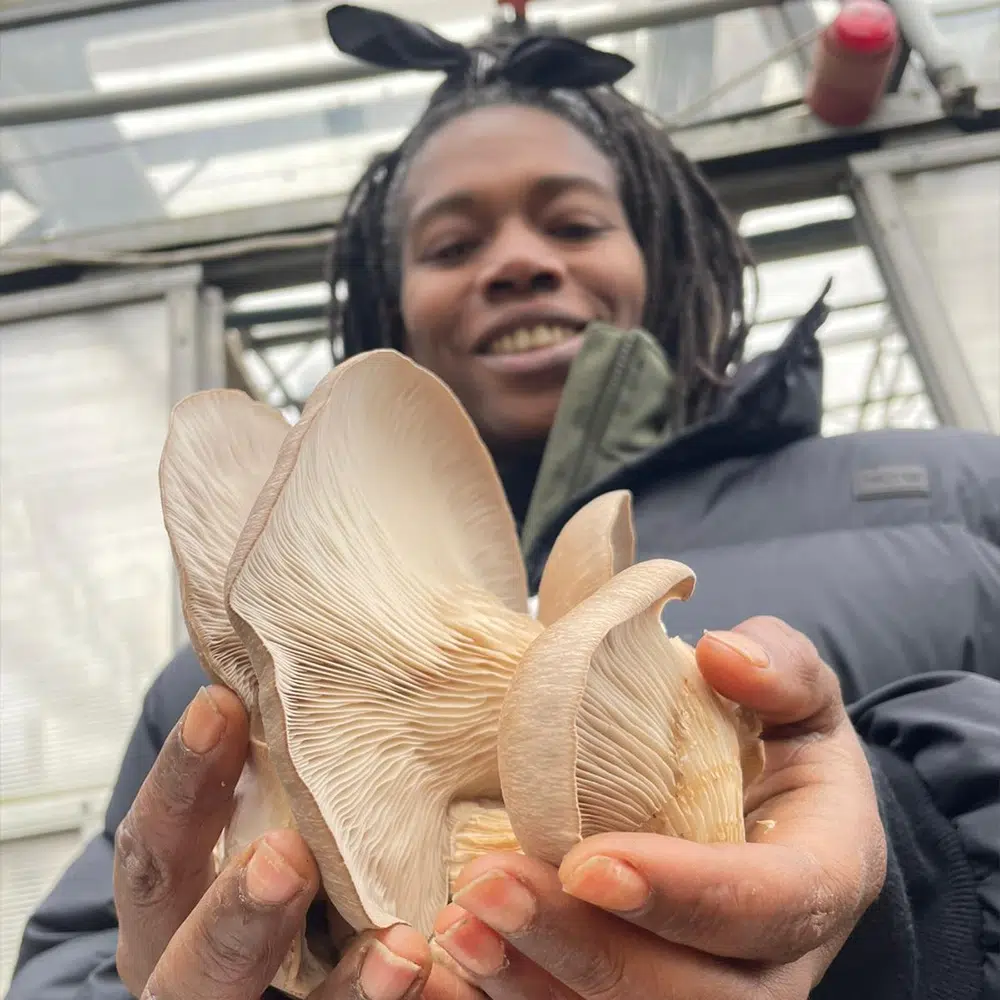
Lecture: Mycelium Cultivating Sustainable Communities
Explore how mushrooms and mycelium can help us grow more than food—they can help us regenerate soil, reduce waste, and reconnect communities. This session dives into accessible mushroom cultivation using recycled materials, and how these practices can be brought into schools, gardens, and community spaces.
Learn how to:
- Grow edible mushrooms with low-tech, low-cost methods
- Use fungi to improve compost and soil health
- Turn waste streams into growing opportunities
- Integrate mushrooms into education and community food projects
- Use the mycelium network as a model for sustainability and connection
Whether you're a teacher, grower, or fungi enthusiast, you'll leave with practical tools and fresh ideas to cultivate change—one mushroom at a time.
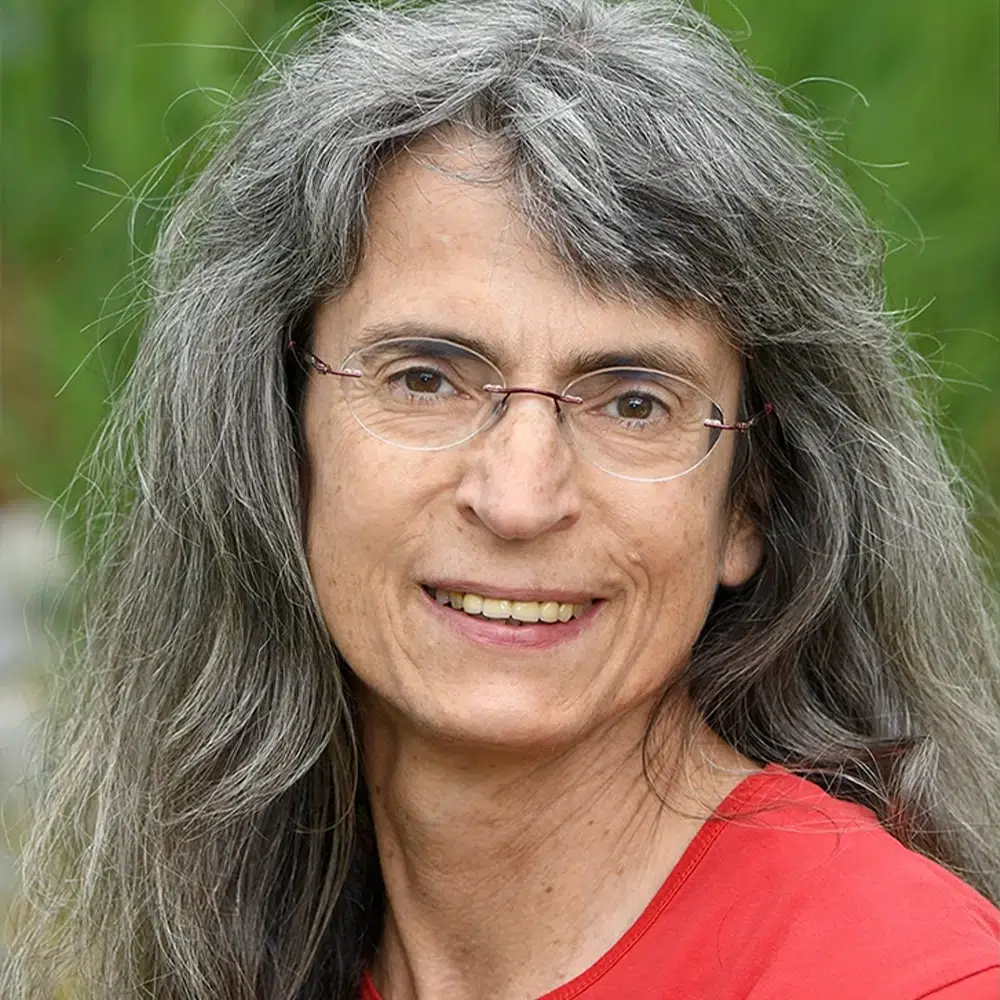
Irmgard Krisai-Greilhuber is a mycologist at the Department of Botany and Biodiversity at the University of Vienna and heads the Austrian Mycological Society. She has long been fascinated by mushrooms and is dedicated to researching native fungi and disseminating knowledge about them. She helped establish Austria's mushroom database, contributed to the Red List of Threatened Mushrooms in Austria, leads excursions and citizen science projects, is involved in mushroom consultations, and identifies mushrooms for the poison control hotline.
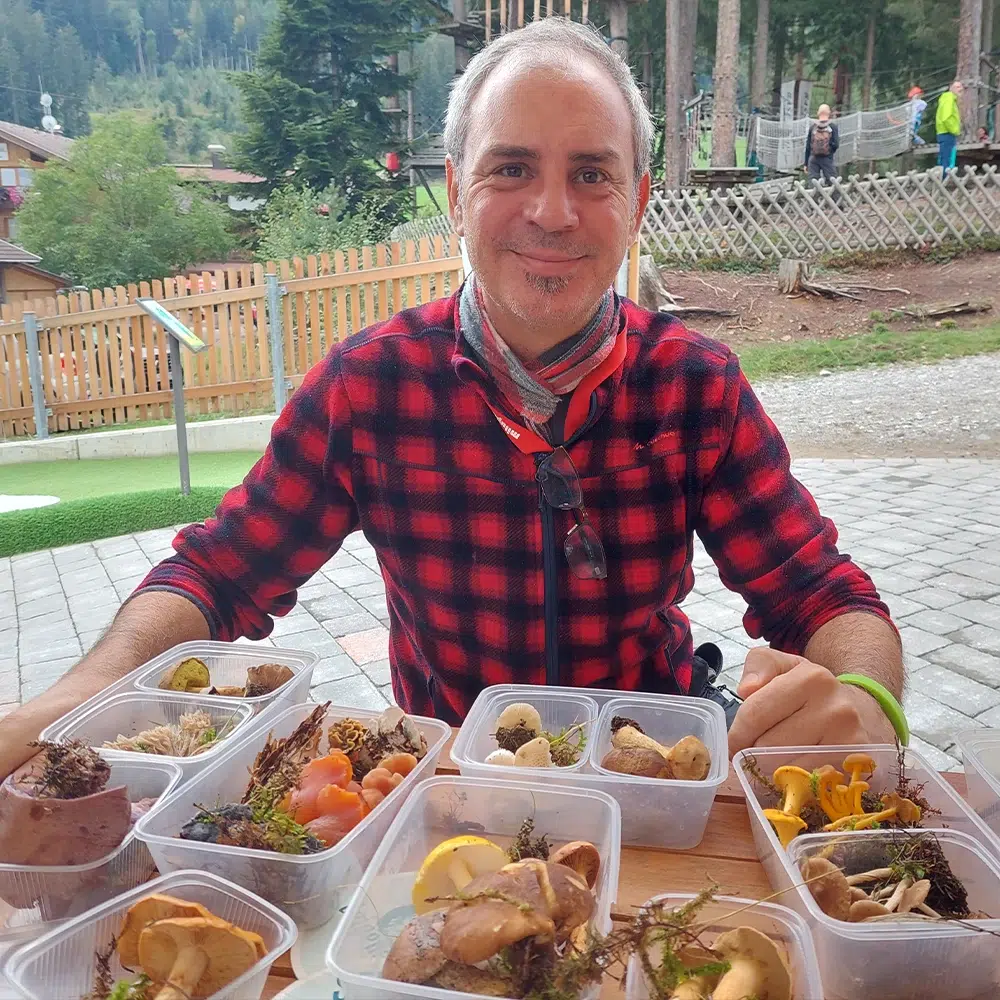
Juan Martinez, M.A., was born in Barcelona and spent ten years traveling the globe as a marine biologist and diving instructor. When love brought him to Vienna, he discovered a new calling: the world of mushrooms. Fascinated from the very beginning, he immersed himself in the study of mycology. As a biologist and certified mushroom consultant, he now shares his knowledge and enthusiasm in seminars, workshops, and guided tours. His courses offer in-depth insights into the fascinating world of mushrooms.
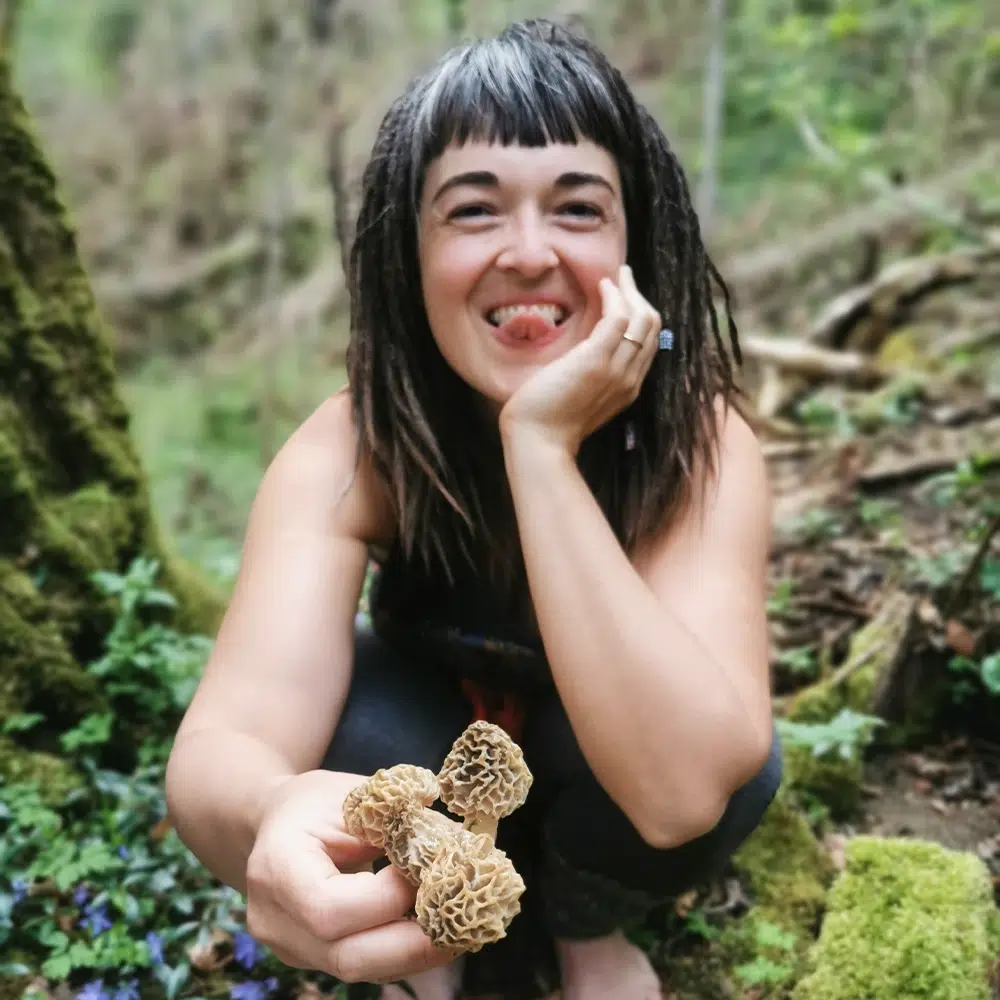
Lucia has been involved in permaculture and nature education for many years and, through her studies in organic farming, also discovered the topic of mushrooms. She met Lee-Roy during an internship with the Tyrolean Glückspilze (Lucky Mushrooms). With her understanding of ecosystems and the fungi within them, she will accompany Lee-Roy in conducting the workshop.
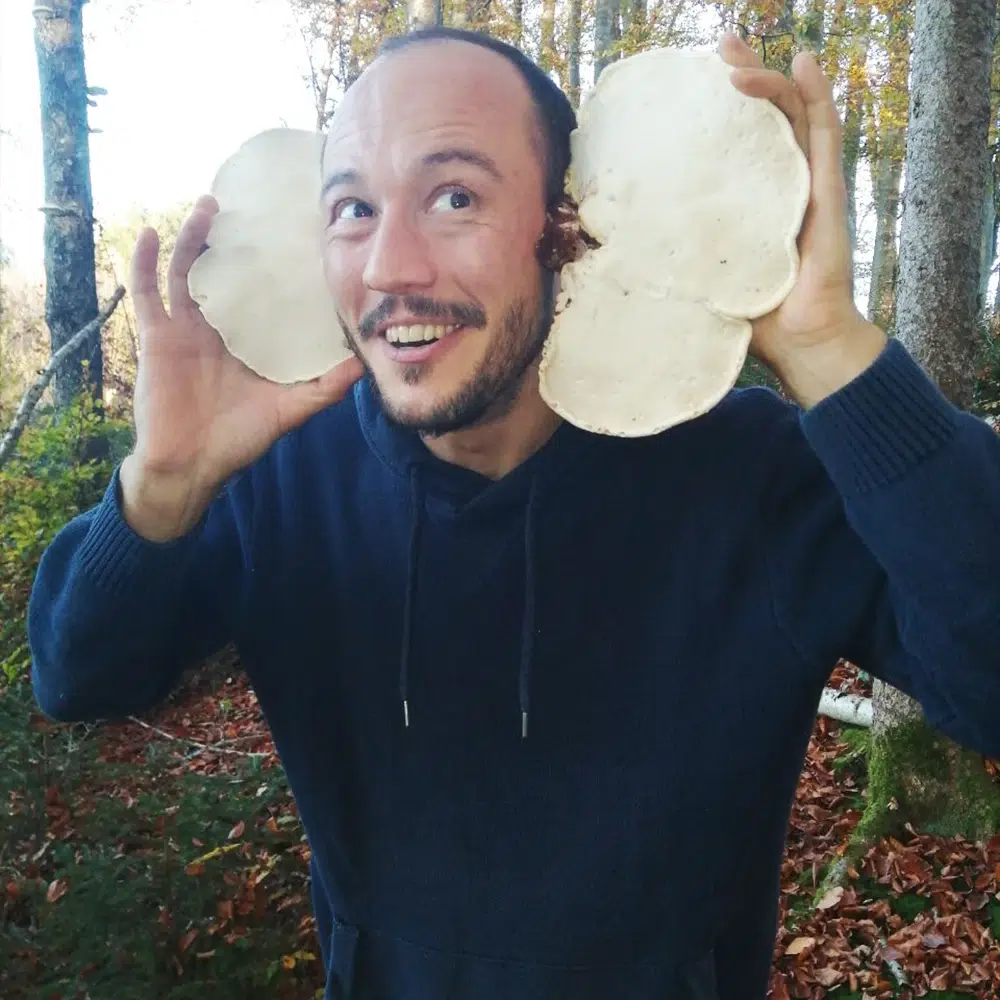
Lee-Roy is a trained gardener, landscape ecologist, and architect, and has been exploring the forests of his home region of Vorarlberg since he was a child. His deep interest in the fungi kingdom dates back to childhood, and he has thus acquired a level of expertise through self-study. Today, he works as a mycologist at the MRCA and a nature educator with the Tyrolean Lucky Mushrooms, where he often serves as the voice of the mushrooms.
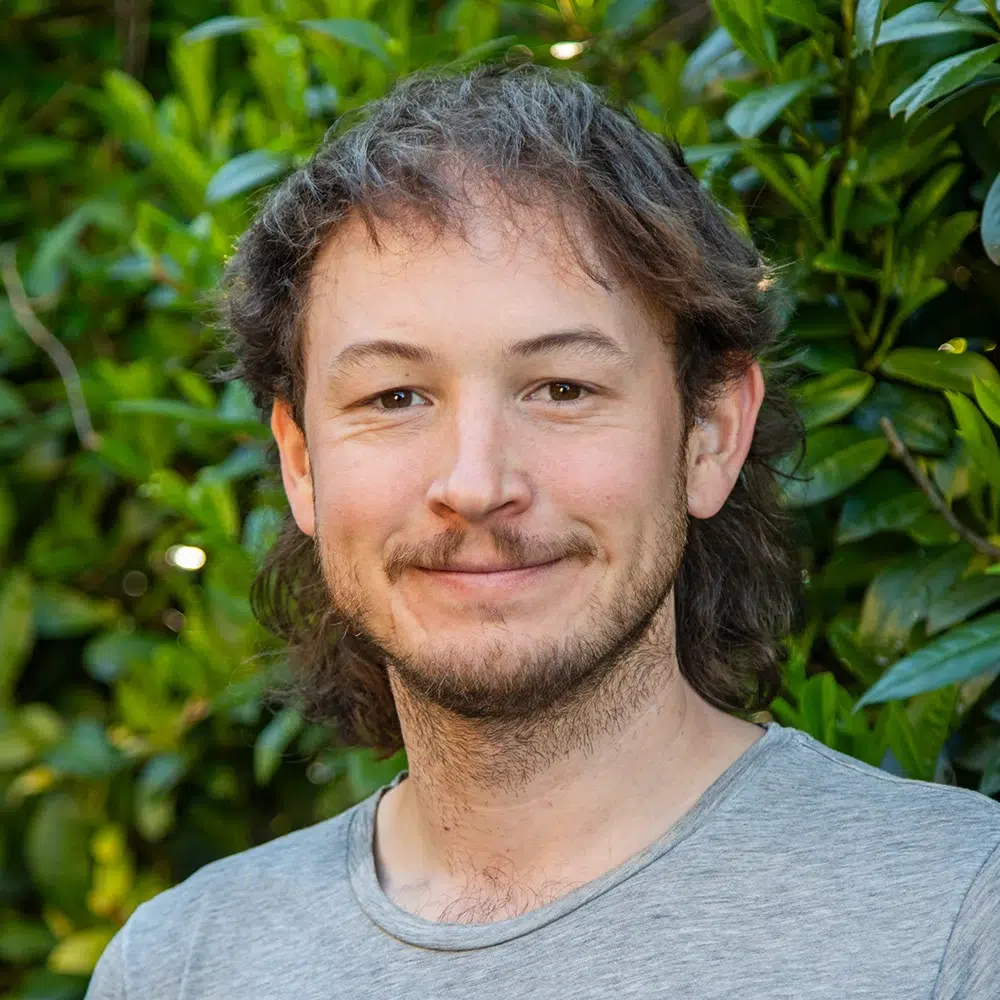
Bernhard Sams, a graduate engineer with a background in plant ecology, discovered mycology over 10 years ago and immediately fell under the spell of fungi. Through self-study, he has learned a wide range of different cultivation methods.
With a distinct DIY mindset, he pursues a low-tech approach to mushroom cultivation – away from specialized equipment and professional laboratories. Thanks to his in-depth knowledge, practical experience, and infectious enthusiasm, he succeeds in inspiring people to cultivate mushrooms and offering them uncomplicated access to the world of mycology.
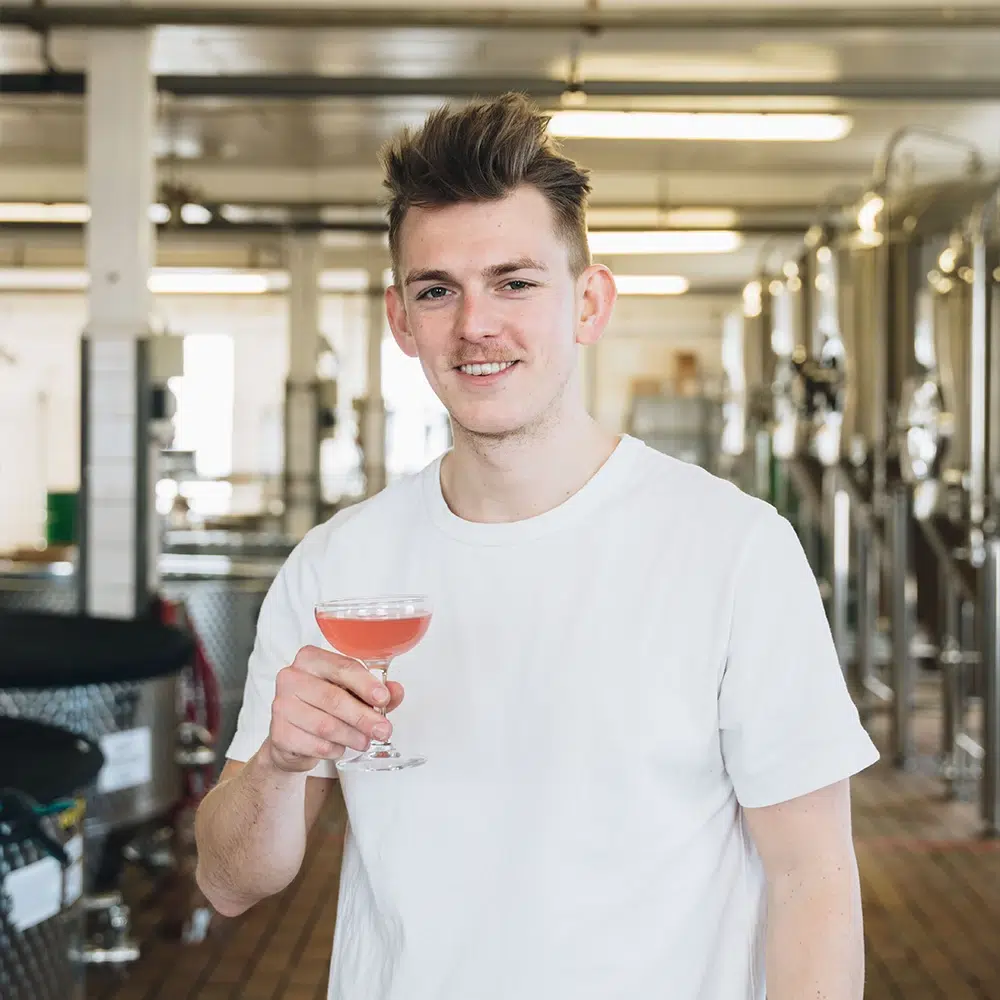
Alex is an avid home cook, fermentation expert, and founder of BOOTCH. His passion for traditional beverages began during the coronavirus pandemic with homemade milk kefir in the shared kitchen and evolved through tepache and ginger beer to what is arguably the most traditional and, for him, most exciting beverage: kombucha.
With BOOTCH Kombucha, he has been pursuing a clear vision since the end of 2023: to create an honest beverage that is free of artificial additives – but instead convinces with depth, character, and attitude. Kombucha should not only taste good, but set a new standard: for enjoyment without alcohol, for variety beyond the monotony of soft drinks – and for a beverage culture that speaks of quality, not marketing.
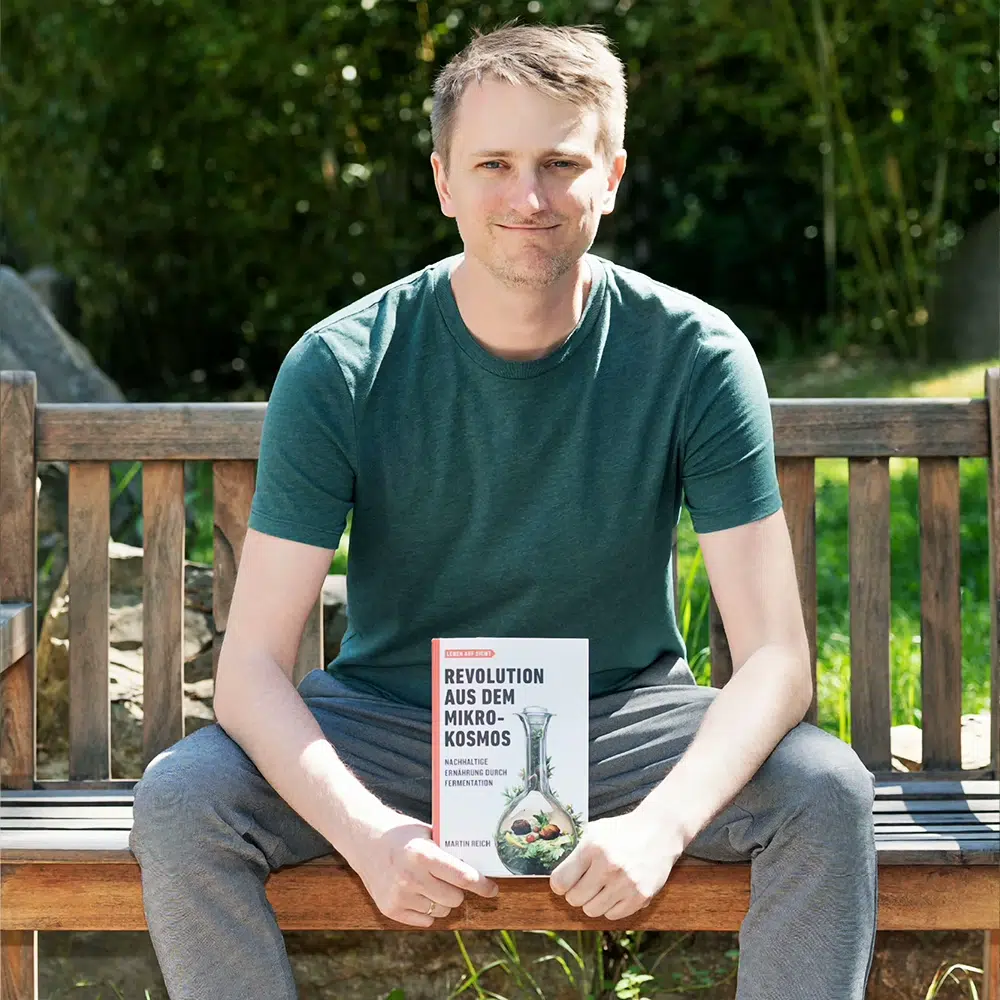
Martin Reich holds a doctorate in biology and has been working as a scientific speaker, consultant, and editor in Berlin since 2016. He advises politicians and businesspeople on bioeconomy and develops entertaining formats for science communication, especially in the areas of bioeconomy and nutrition. In his private life, he helped found the Eco-Progressive Network, a non-profit organization committed to evidence-based climate and environmental protection. He is also a board member of the environmental organization WePlanet and a member of the advisory board of the German Society for Synthetic Biology. His book "Revolution from the Microcosm" was published in 2024. In it, he describes how we can radically make our diets more sustainable through fermentation. He lives on the outskirts of Berlin with his wife and son, two cats, two turtles, and plenty of board games.
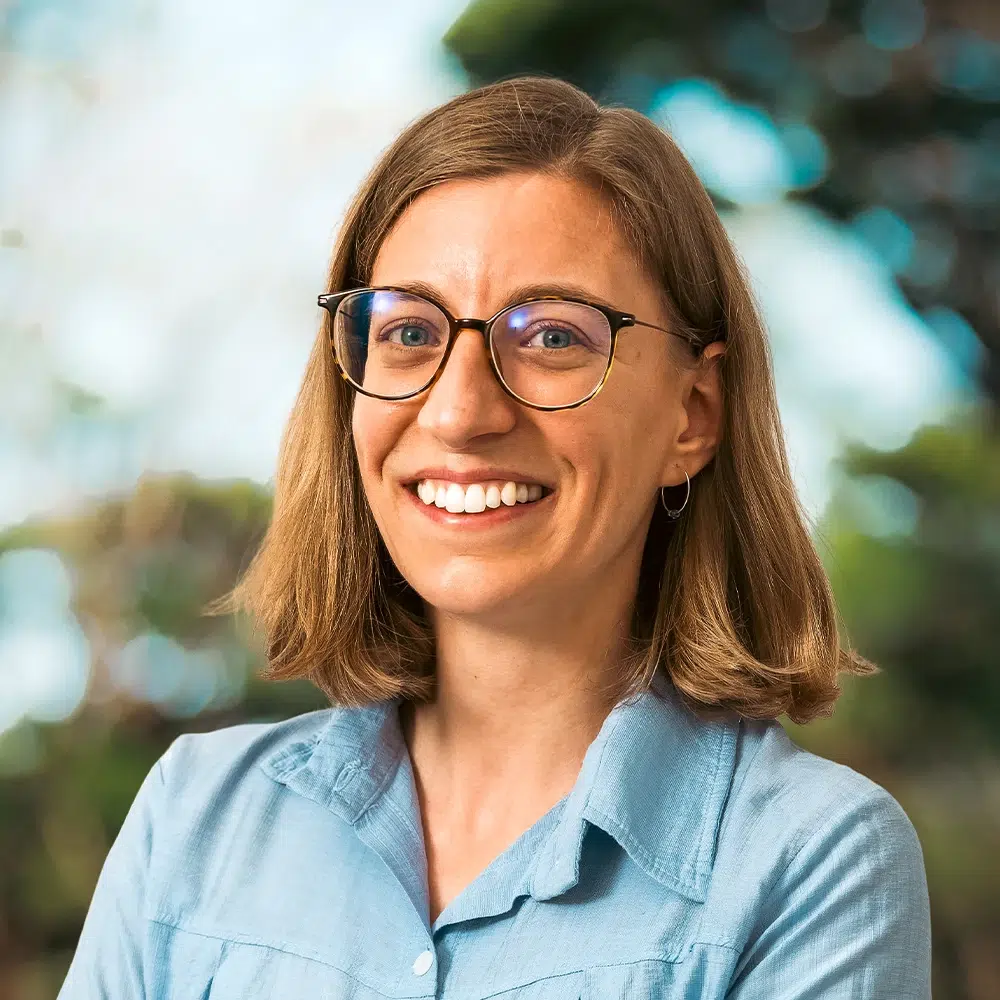
Valeria holds a doctorate in biotechnology and molecular biology with a particular passion for fungi and their diverse applications. In the course of her scientific work, she has, among other things, optimized fungal strains for industrial use and developed DNA molecules for the targeted detection of fungal spores. Today, she heads the Biotechnology department at MyPilz, where she contributes her molecular biology expertise to applied fungal research.
Photo: Lukas Hof
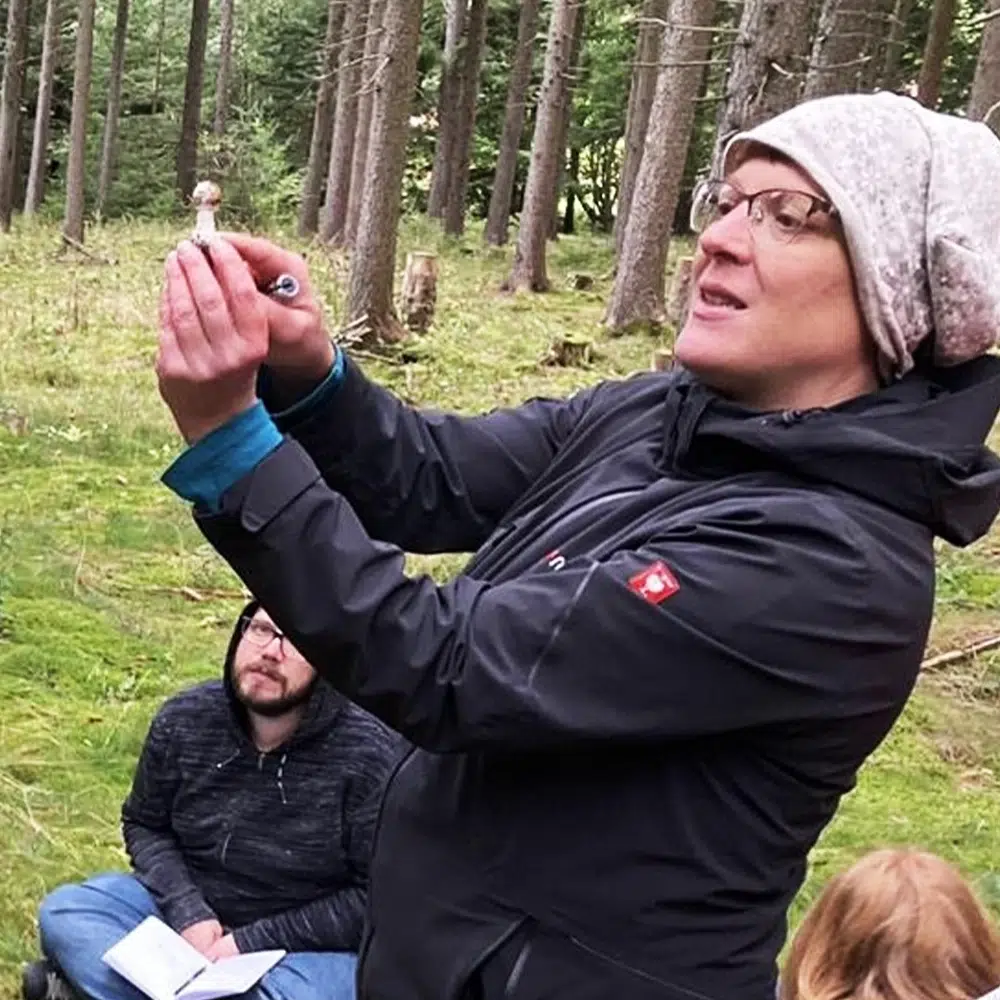
Romana discovered her passion for mushrooms as a teenager. Since 2015, she has been intensively involved in mycology and is a member of the Austrian Mycological Society (ÖMG). Through ÖMG courses and self-study, she has acquired in-depth knowledge of mycology. Romana leads mushroom excursions, workshops, and courses and also brings experience in microscopy and emergency diagnostics for mushroom poisoning.
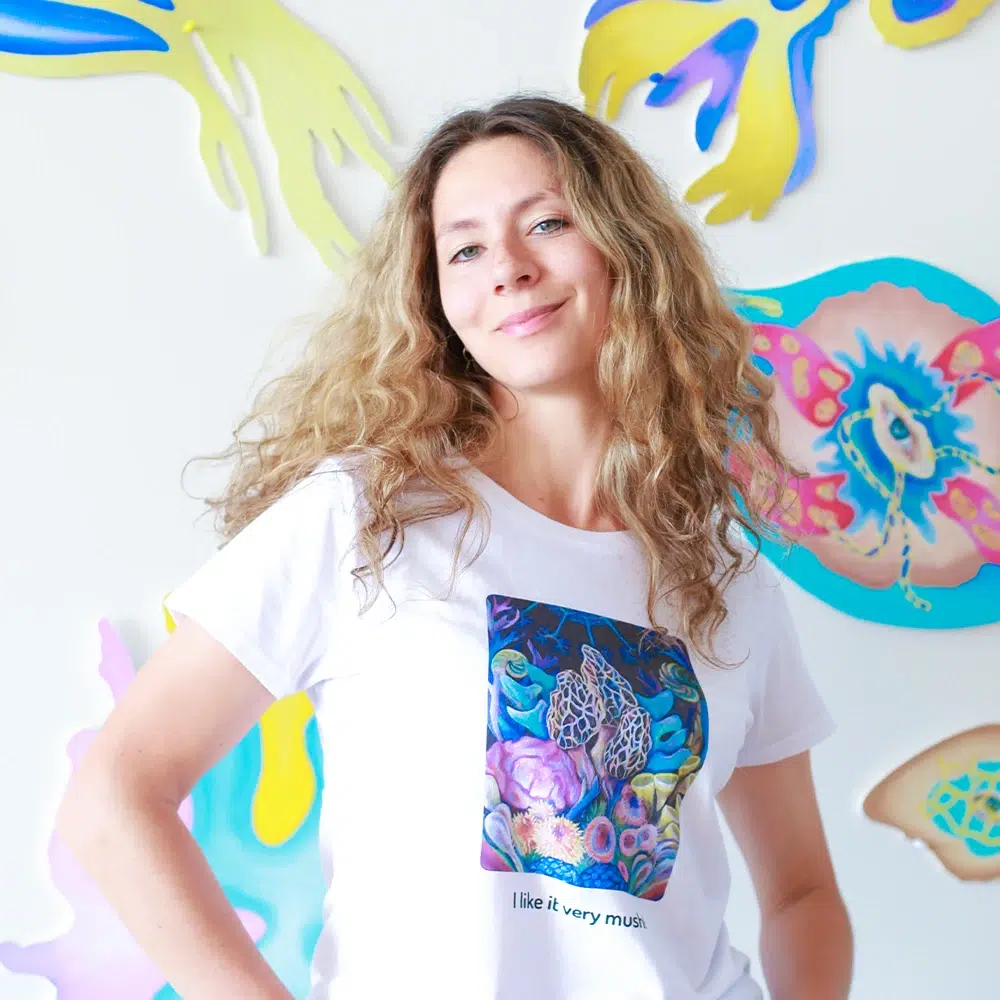
Irene Antonez is a Prague-based multimedia artist and art educator. She creates surreal, psychedelic-looking paintings with a focus on plant world, fungi, and microorganisms. Irene Antonez holds two master's degrees in Fine Art and Future Design from Prague City University. Her paintings are in private collections in the USA, France, Italy, the Czech Republic, Romania, Russia, and more. Antonez's work has been exhibited in numerous group & solo exhibitions, and art & music festivals. For the past 3 years she has been teaching art classes in universities, schools, festivals, hotels, cafes, at conferences, as well as in her own art studio. Antonez developed a unique approach to seminars that unite art, nature, and science. She aims to inspire her students to be open-minded, experimental, intuitive, and curious.
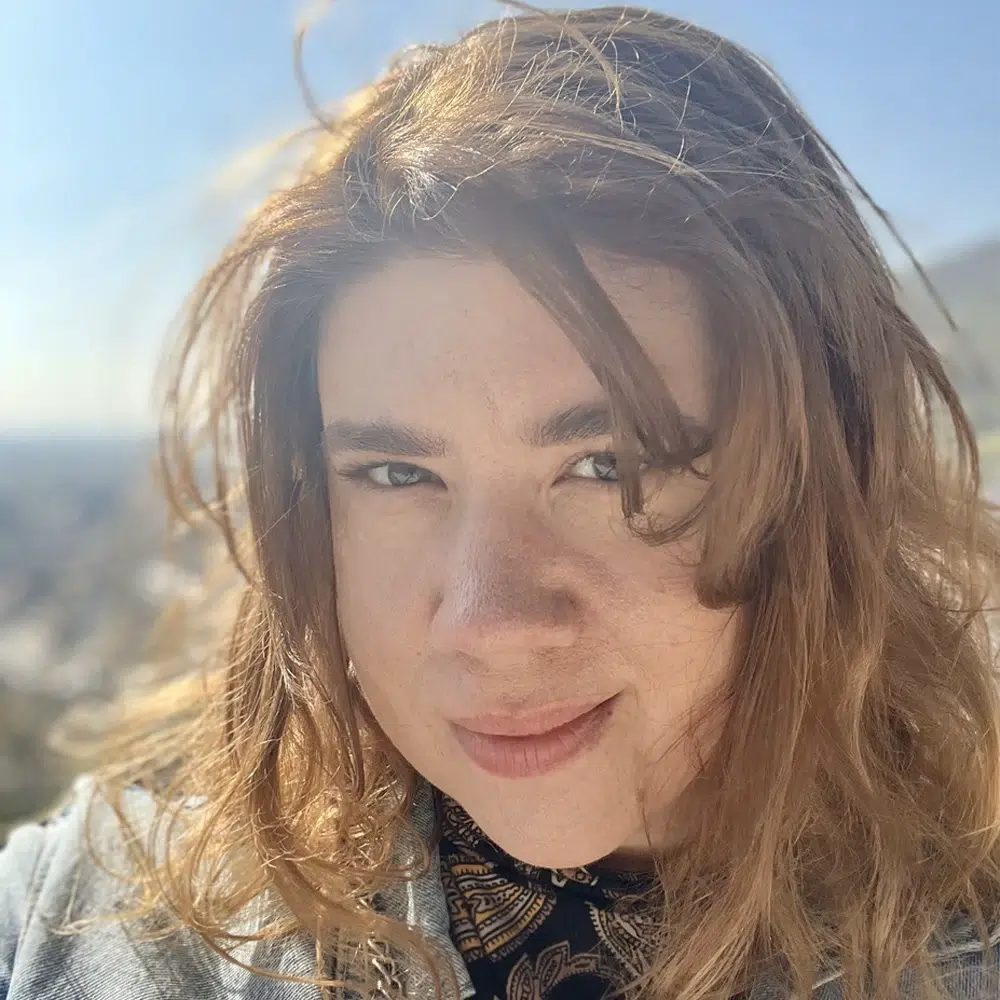
Eileen Fischer, born in Hanau in 1993, is a multi-disciplinary artist. She has been painting and designing since childhood, and her work explores natural elements, forms of communication, and the diversity of human emotions. She combines diverse materials and, with her works, invites reflection on the relationship between humans, nature, and the inner world in the context of science. Aside from painting, she has been a member of the theater group Die Dramateure eV (Die Dramateure eV) for over ten years, where she is responsible for make-up and costume design. She is fascinated by everything self-produced and natural, from vegetable gardening to mushroom hunting to textile design.
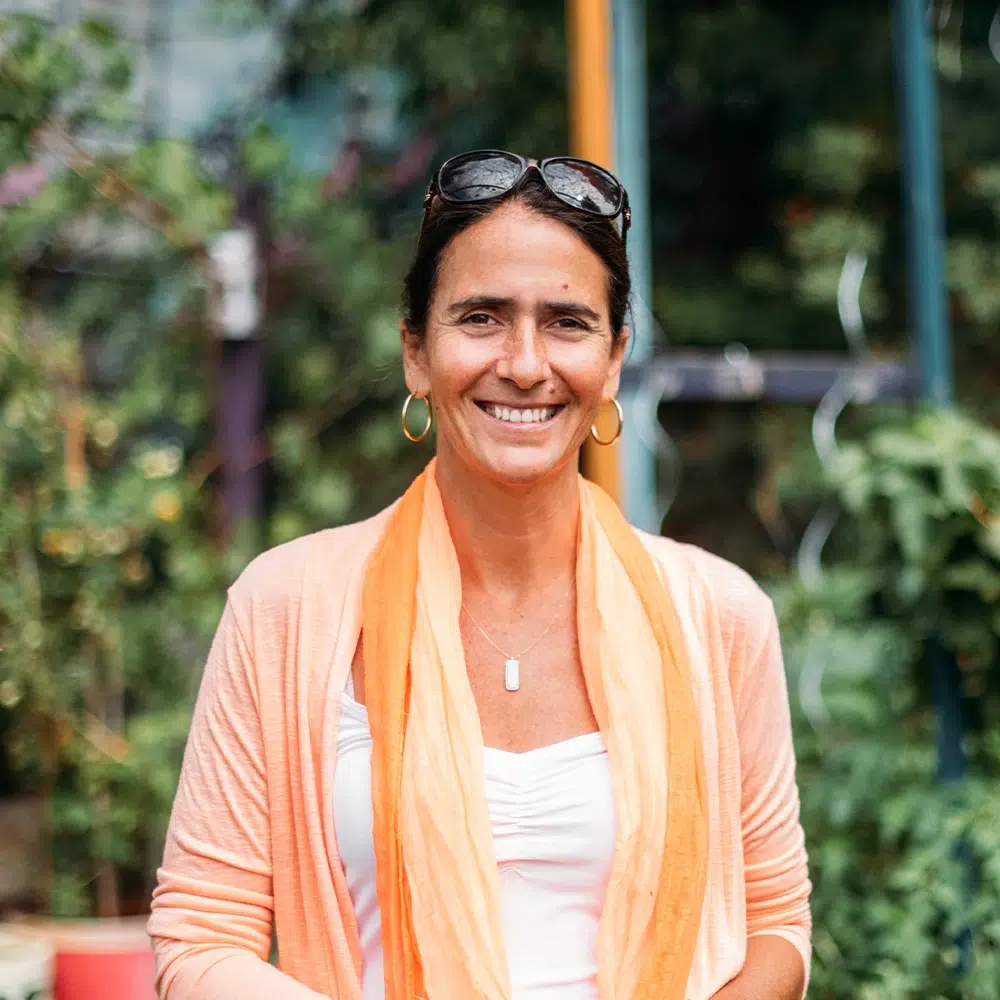
Eva Fauma is a nutritionist and mycotherapy expert. She has been working with medicinal mushrooms in Traditional European Medicine (TEM) for almost 20 years.
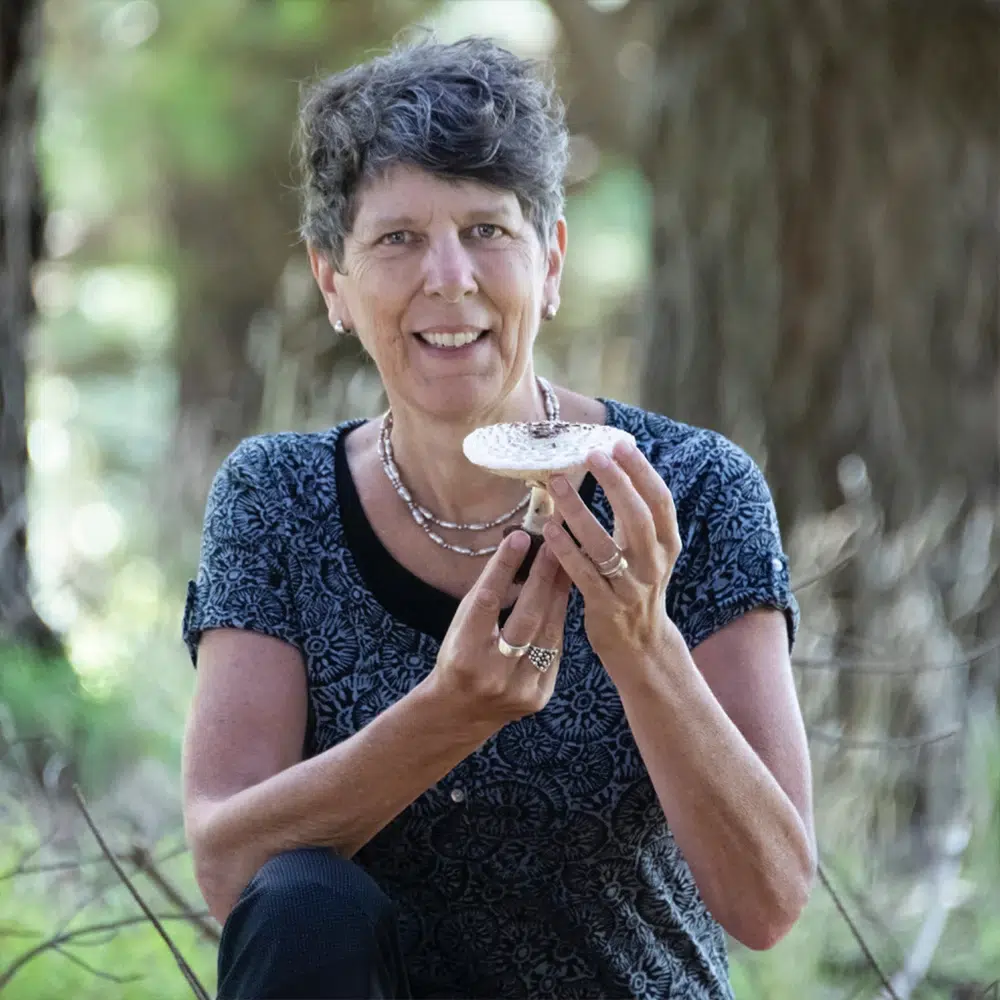
Dr. Alison Pouliot is an Australian-Swiss ecologist and professional environmental photographer with a focus on fungi. She is actively involved in teaching, research and conservation, lecturing across a range of photographic and environmental topics. Her journeys in search of fungi span northern and southern hemispheres, ensuring two autumns and a double dose of fungi each year. Alison is author of The Allure of Fungi, Wild Mushrooming, Underground Lovers, Meetings with Remarkable Mushrooms, Funga Obscura and Mushroom Day.
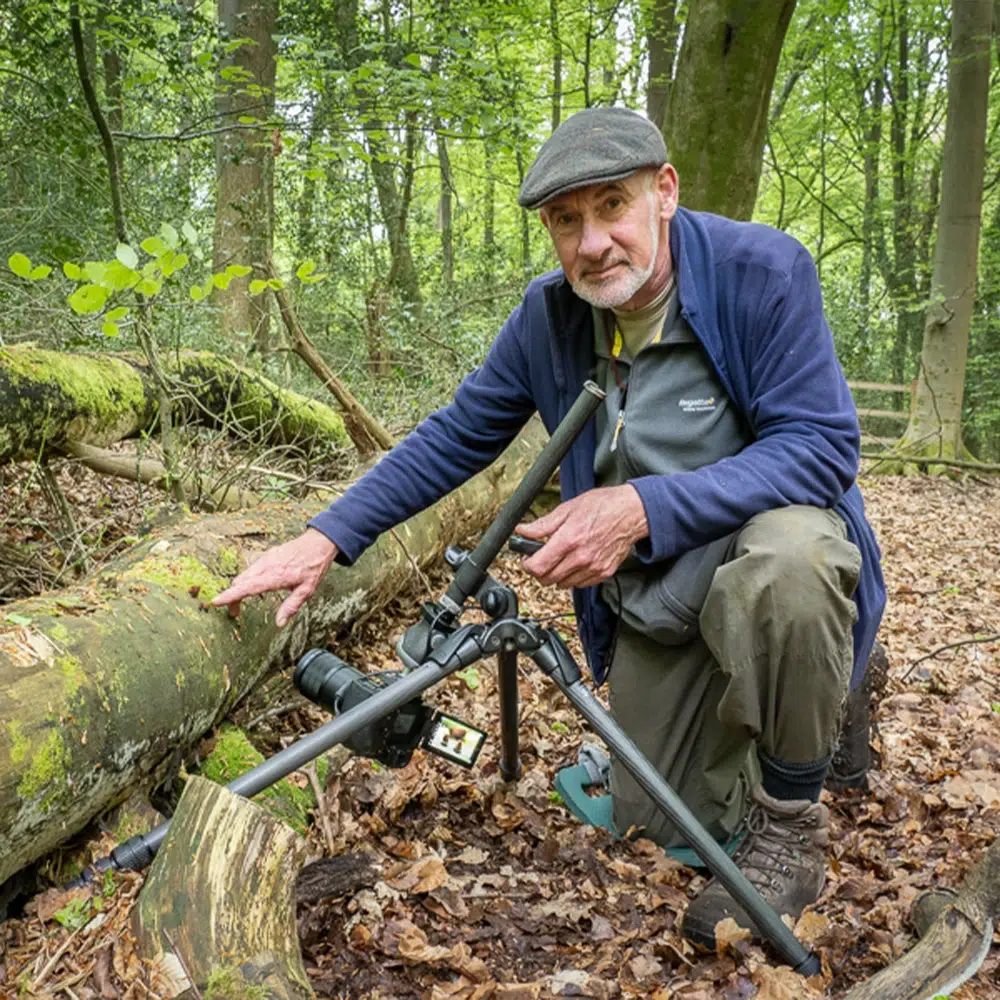
Barry lives in the UK. He has specialized in taking photographs of slime molds for the last six years. He uses focus bracketing and stacking to create his images: often taking 100+ pictures to create a finished, stacked image. His images have won major international competitions and have been published in magazines and books worldwide.
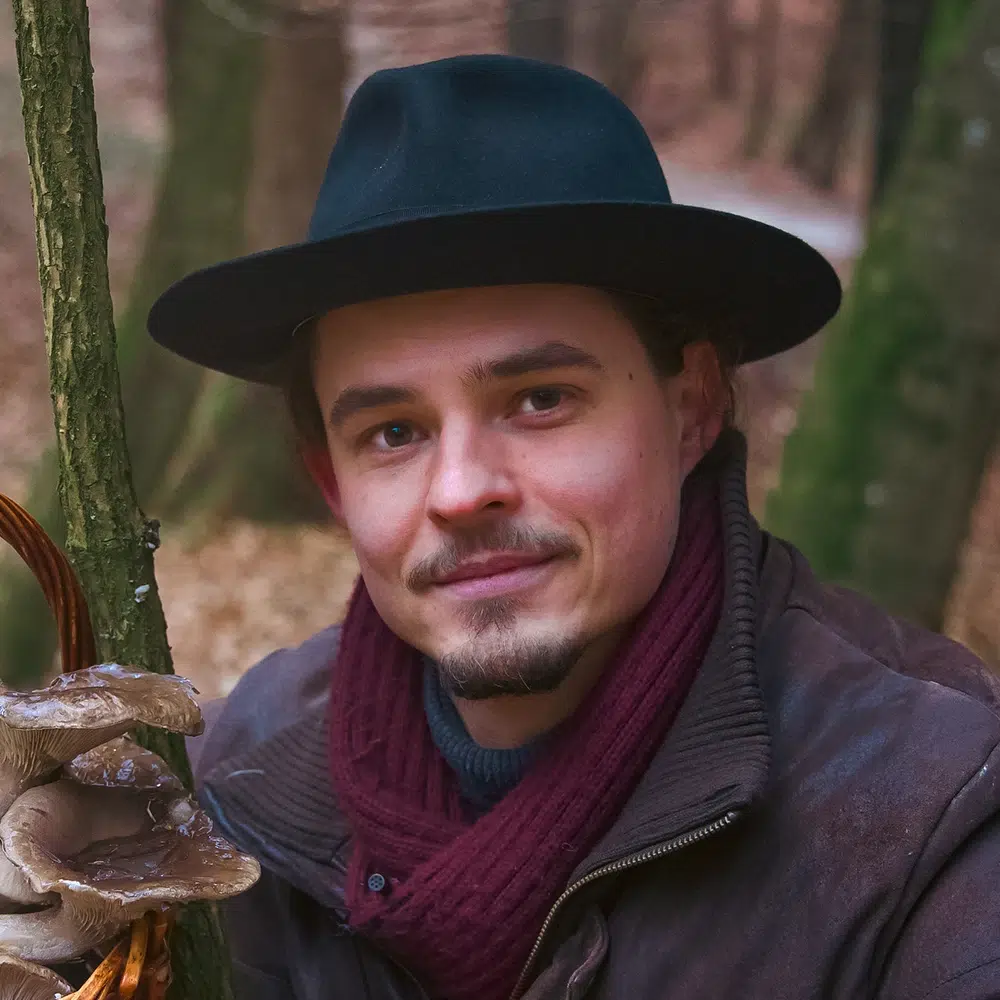
Mushroom book author and Austria's most successful mushroom YouTuber, who grew up on the edge of the Vienna Woods and thus had a passion for mushroom hunting from birth, is an enthusiastic amateur mycologist and has spent his life searching for the secrets of the mushroom world.
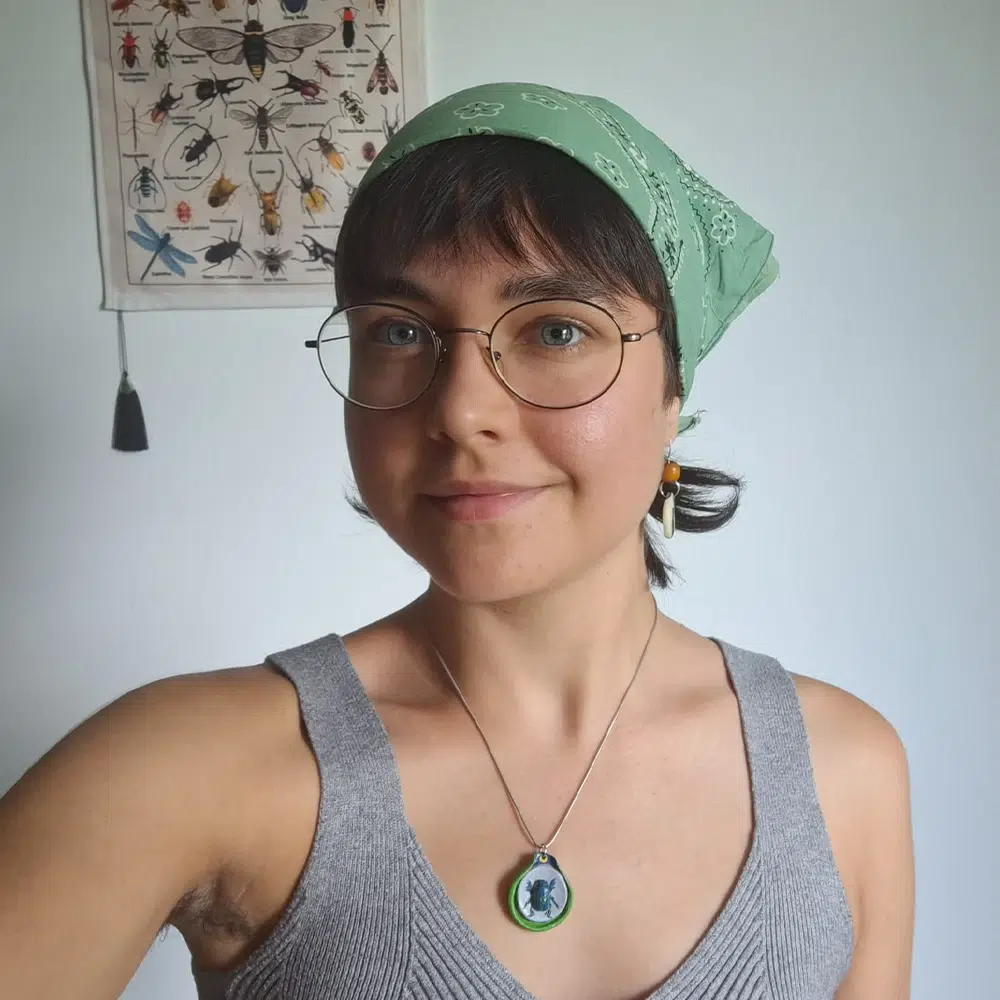
Heli has experience in sharing her knowledge about zoology with children and in working in the field of wildlife conservation, both at home and abroad. Ever since her bachelor's thesis on an ant-plant mutualism in Costa Rica, where fungi also play a vital role, she has been captivated by ecological processes.
Altogether she is very passionate about protecting nature, especially when it comes to our soils, which are incredibly important for maintaining global health. Interactions between plants and mycorrhizal fungi are of particular importance here, and that's why she's currently delving deeper into this fascinating topic.
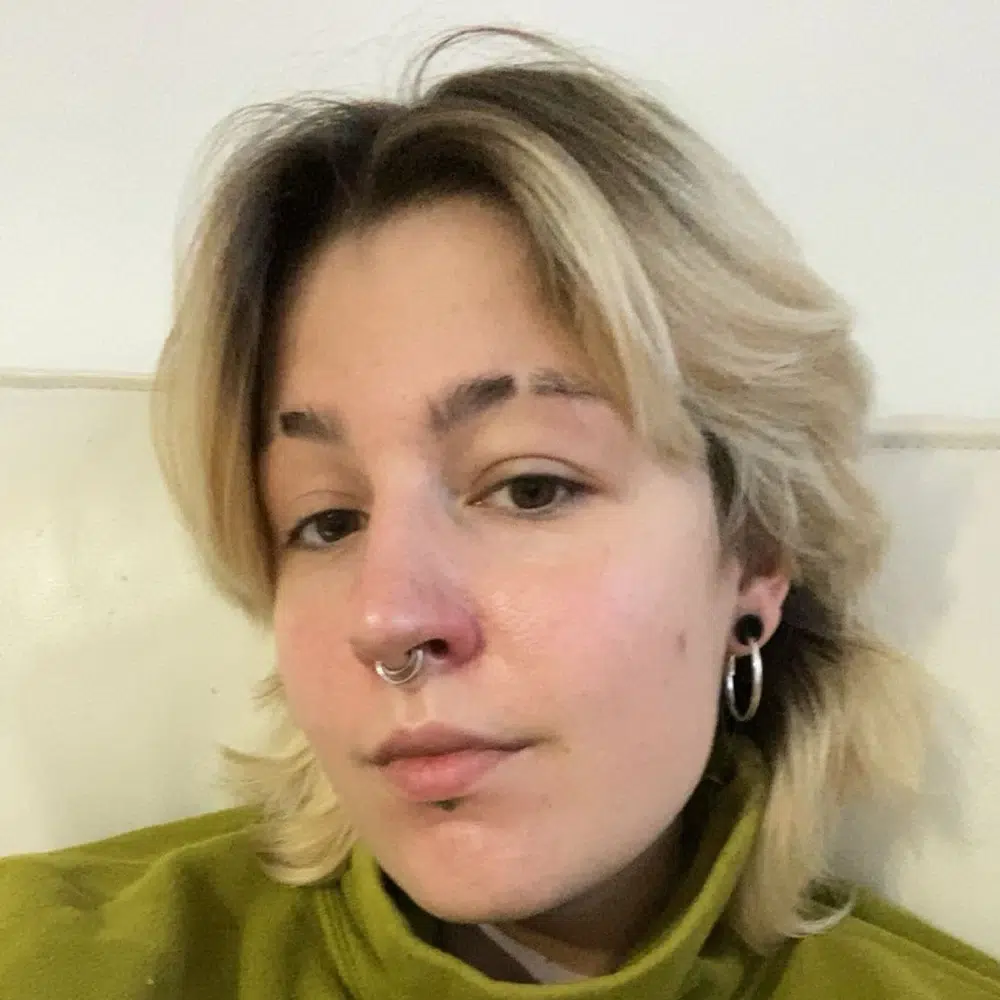
Iris grew up on the countryside of Carinthia, where she developed a deep love for nature from an early age. Fascinated by the complex interactions within ecosystems—from roots to treetops, from moss to mushrooms—she has been studying botany at the University of Vienna for some time now. With her keen eye for detail and genuine curiosity, she brings both knowledge and enthusiasm to the workshop, making the experience of exploring the world of fungi both insightful and inspiring. She knows how to make the world of fungi come alive for others with her clear explanations and passion.
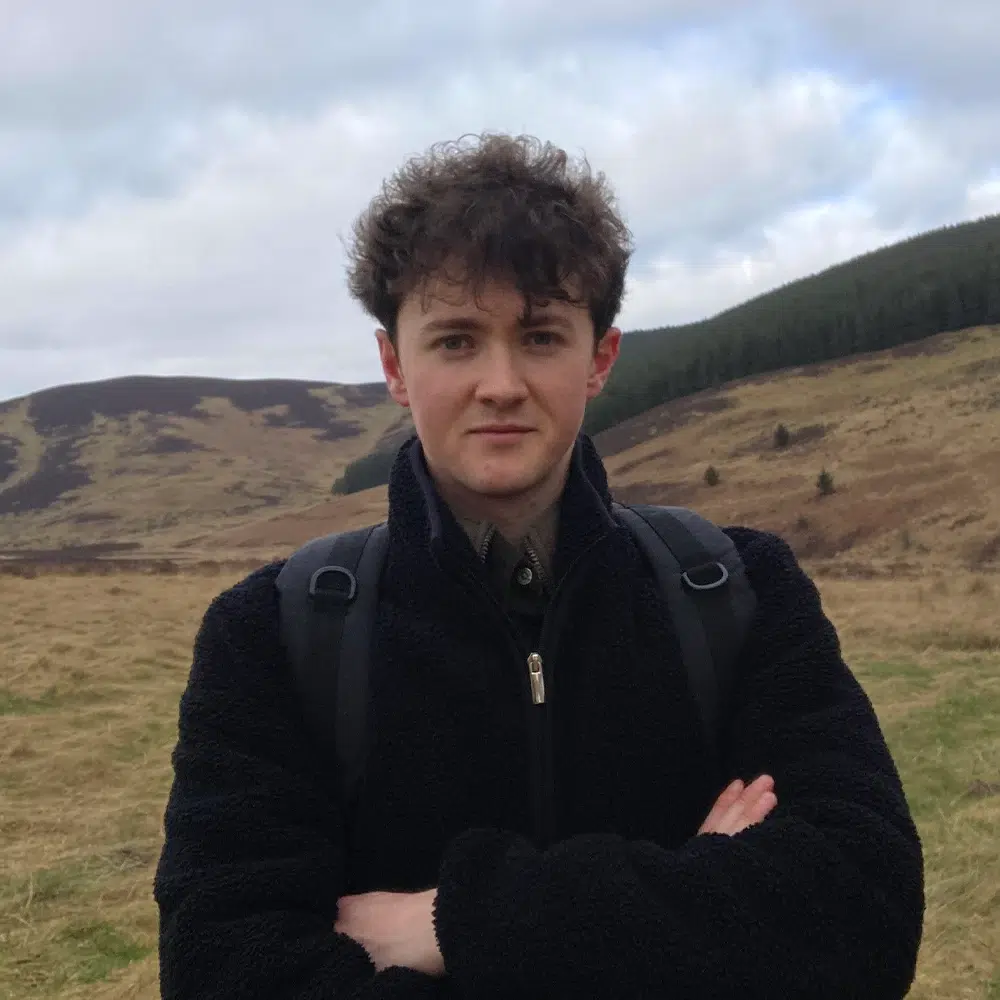
Based in Edinburgh, Scotland, Alfred studies coprophilous fungi—those that grow on herbivore dung. His work aims to bring attention to this often-overlooked yet remarkably complex and ecologically important group of fungi. One way he highlights these organisms is through macro time-lapse videos that capture their growth, particularly of species of Pilobolus (also known as “dung cannons”) and delicate inkcap mushrooms.
Through studying dung fungi in Scotland, he has discovered a number of species new to science, which he is currently working to describe formally. He is also working on a collaborative project to develop An Illustrated Introduction to the Coprophilous Fungi of Europe, aimed at a broad audience and designed to showcase the extraordinary diversity of fungi found in this unusual habitat.
You can follow his latest findings and videos on Instagram: @scottish.fungi
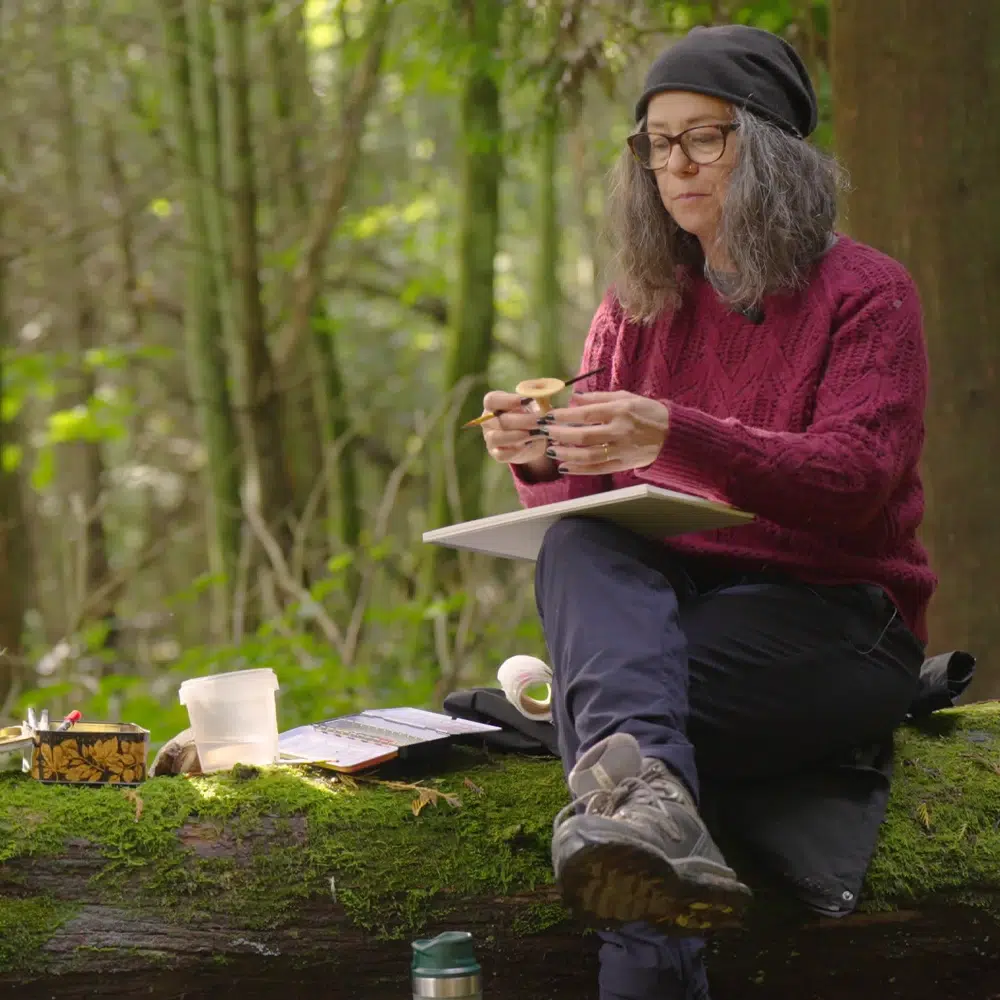
Jana Nicole is an award-winning mixed-media artist and educator based in the UK, known for her intricate collage work inspired by the natural world. She is the co-founder of the UK's first fungi-focused festival, and her practice often weaves together art, science, and storytelling to inspire deeper connections with the wild. Her workshops are known for their warmth, creativity, and nature-based themes.
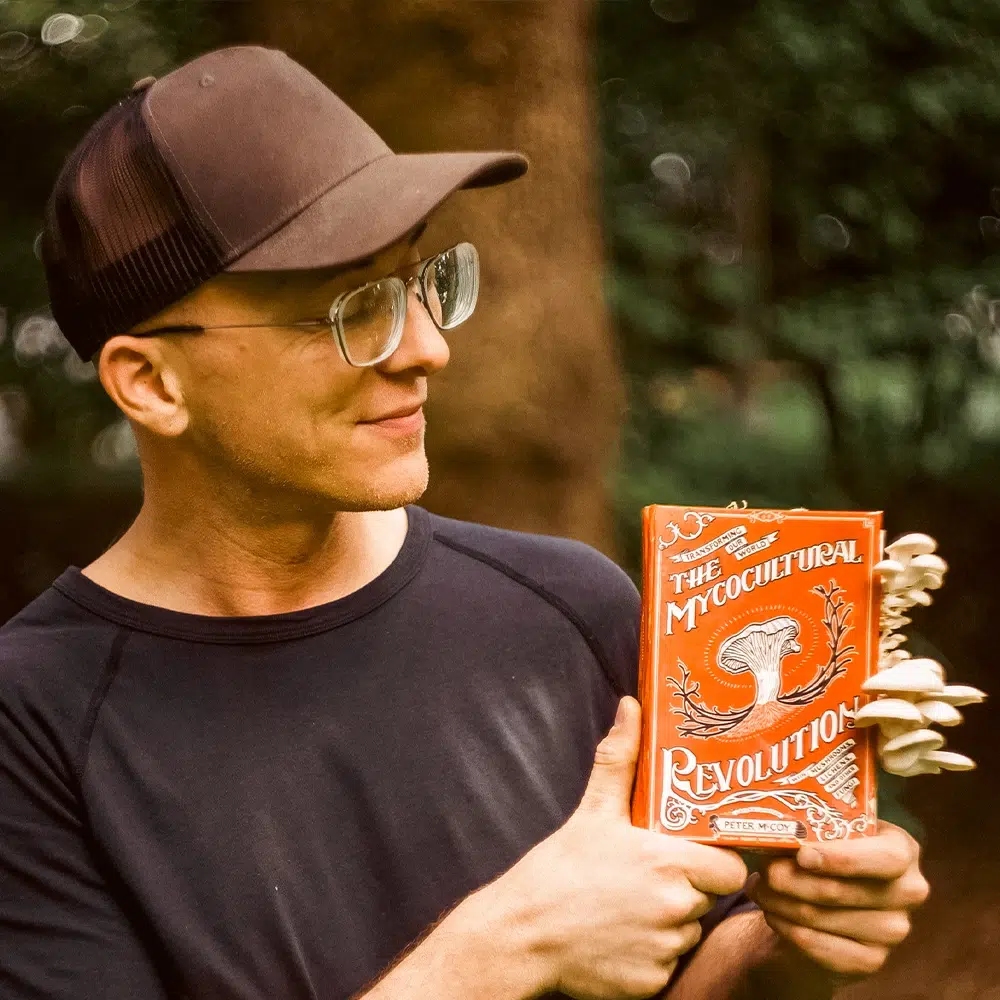
Peter McCoy is an internationally recognized researcher, activist, and educator in the field of applied mycology with over 20 years of experience. He is the founder of the international grassroots movement Radical Mycology, co-founder of the Fungi Film Festival, and founder of MYCOLOGOS, a school of applied mycology based in Portland, Oregon. In addition to his work with fungi, Peter is active as an artist and musician.
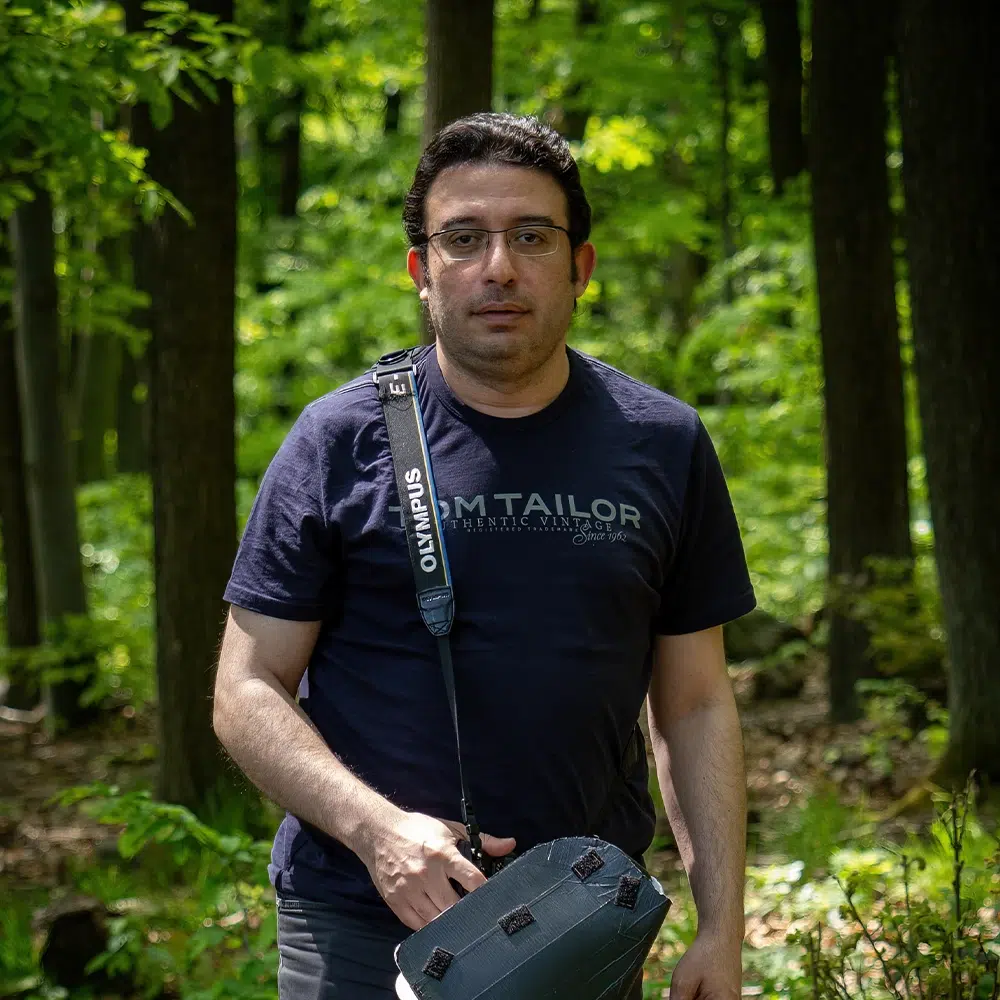
Ehab has been exclusively photographing macro images of nature since 2010. He is inspired by the beauty of mysterious nature.
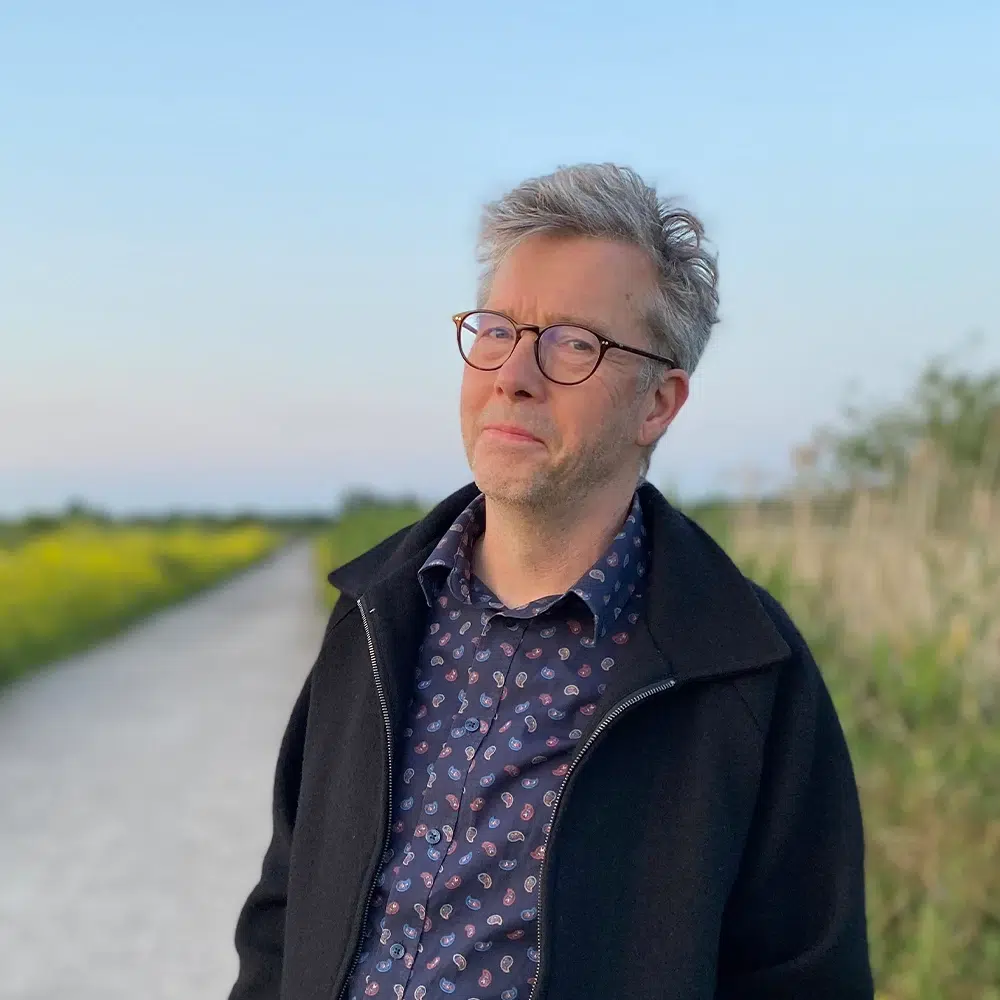
Science has always fascinated me and my work has a certain affinity with it. Photography is an unusual mixture of technique and perception: the camera acts as a surrogate eye, a mechanical observation device that enables us to capture an image. I am particularly interested in those areas where photography deviates from human perception. This is one of the reasons why I started using optical techniques to increase our scope. I have specialized in photography through the microscope and in stereoscopy and a combination
of both. I have been portraying microorganisms for more than 30 years.
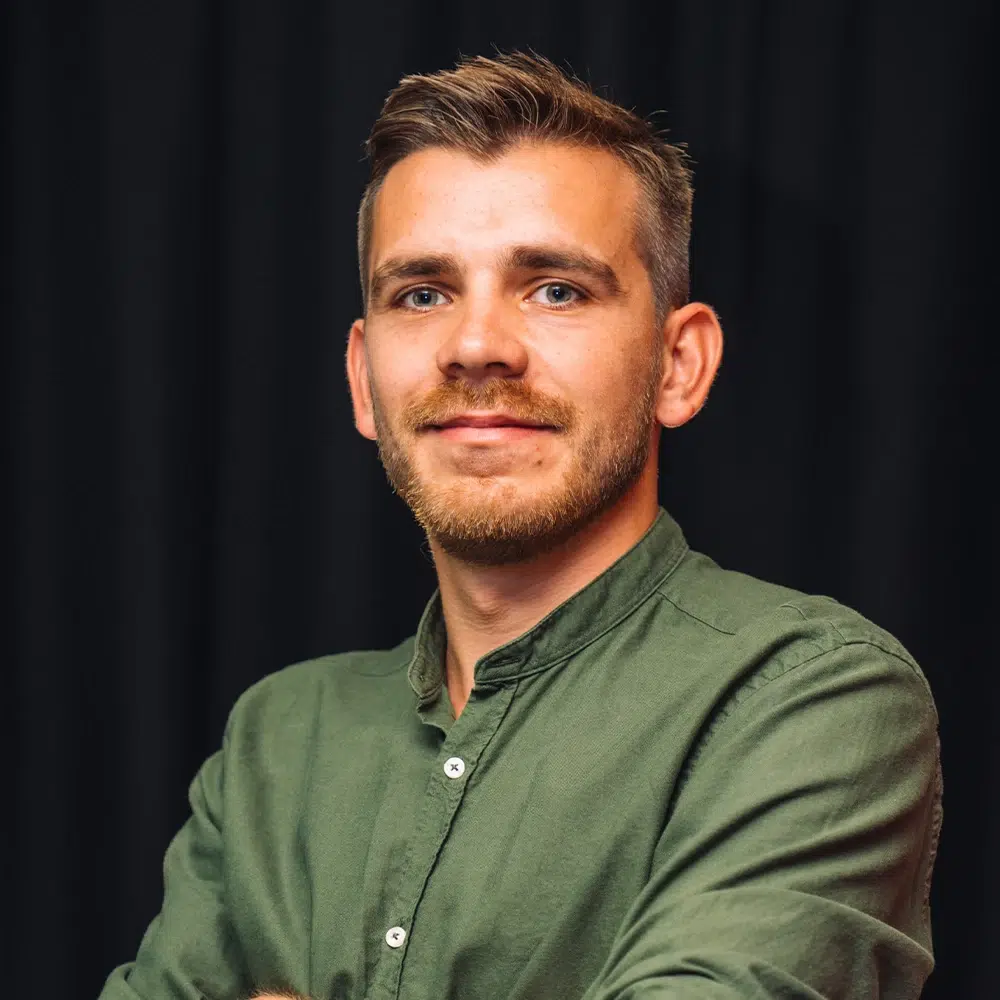
EcoMycel develops sustainable insulation materials made from mycelium, the root network of fungi, as an eco-friendly alternative to conventional, energy-intensive building materials. The biodegradable products reduce CO₂ emissions, improve indoor air quality, and enable decentralized, resource-efficient production using agricultural byproducts.
Nándor Albert is a former chef turned mushroom entrepreneur, combining a lifelong passion for fungi with hands-on innovation. He founded Mycorama to bring mushroom cultivation into everyday homes and is now expanding into sustainable mycelium-based materials. Through creative products, workshops, and bold ideas, he aims to reshape how people grow, learn from, and build with mushrooms.
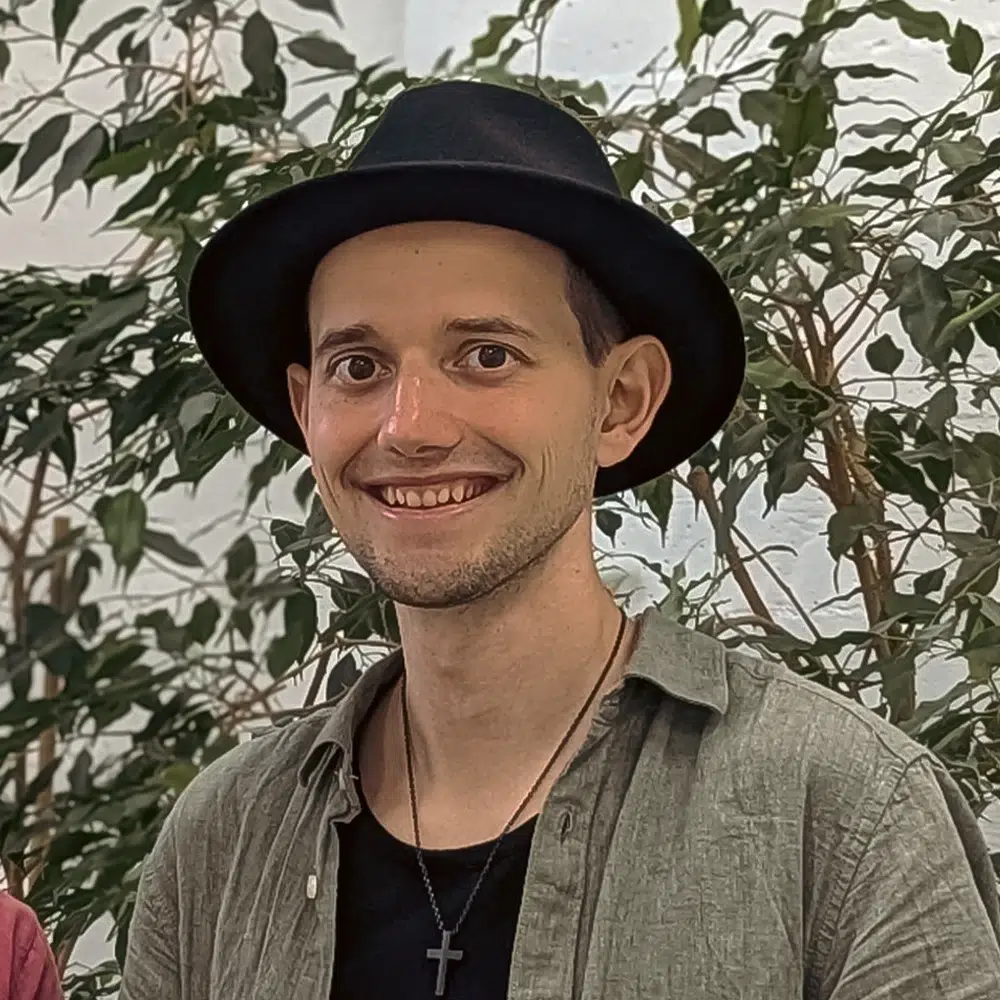
EcoMycel develops sustainable insulation materials made from mycelium, the root network of fungi, as an eco-friendly alternative to conventional, energy-intensive building materials. The biodegradable products reduce CO₂ emissions, improve indoor air quality, and enable decentralized, resource-efficient production using agricultural byproducts.
Tobias Figlmüller studied architecture with the goal of designing for both people and the planet. Realizing that sustainable buildings alone aren't enough, he focused on transforming the construction industry's material choices. With EcoMycel, he is developing a compostable insulation made from mycelium and plant waste to push circular building forward.
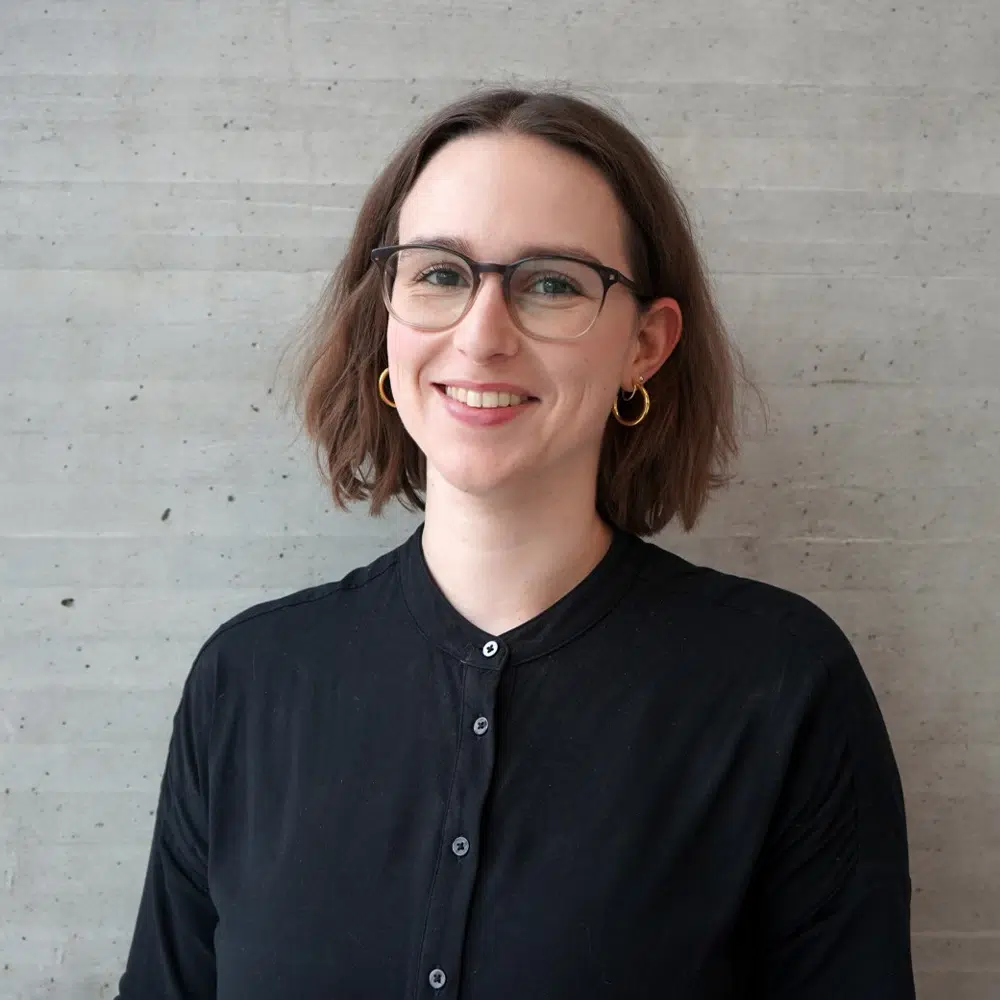
Lecture: Material-based design with fungal mycelium – From material experiment to architectural concept
Melissa Acker earned her diploma in Industrial Design from the Stuttgart State Academy of Fine Arts. During her studies, she developed a passion for projects with social and ecological added value. As a product and interior designer and sustainable materials manager, she worked with international companies and local design agencies to promote the increased use of sustainable materials.
Since 2021, she has been an academic assistant in the Master's program in Interior Design at the Stuttgart University of Applied Sciences, where she teaches and researches alternative materials in design and architecture. In 2023, she initiated and established the "Myco Lab - Laboratory for Fungal Materials," which offers students low-threshold access to mycelium research. In 2022, she founded the studio sustainable matter, which operates in an interdisciplinary manner in the field of product design, interior design, and materials research. In addition to material research and consulting, sustainable design concepts are developed there to promote a new perception and appreciation of resources and advance the innovative use of materials in the context of the climate crisis.
In her talk, Melissa Acker will introduce the method of material-based design—an approach to educational research projects that uses the material itself as the starting point, not a finished concept. Students begin hands-on with the material: They explore its properties, test its limits, and are inspired by its reactions. This creates direct, inquiry-based learning that combines creative thinking and practice-oriented action.
Using project examples, she shows how students initially test mycelium on a small scale – from production and understanding growth processes to material behavior and processing techniques. This leads to the development of architectural concepts in which mycelium is used, for example, as an insulating material.
The Myco Lab operates in an interdisciplinary manner and networks with partners such as the Fraunhofer Institute. One example of cross-institutional collaboration is the installation "Escape into the Shadows," created in cooperation with the University of Stuttgart and Deggendorf University of Applied Sciences for the "keep cool!" exhibition, running parallel to this year's Venice Architecture Biennale. It demonstrates how fungal mycelium, as an organic, shade-providing structure, can contribute to adaptation to urban overheating—thus combining art, design, and science to develop new, sustainable strategies to combat the effects of climate change.
The iterative process—from material experiments to full-scale applications—makes the design potential of mycelium tangible and raises awareness of material cycles and resource conservation. The lecture combines materials research, design practice, and sustainability, demonstrating how materials can become active components in the design process—an experience that strengthens knowledge, creativity, and sustainability skills in equal measure.

Sarah is an art theorist and curator and, as FWF Elise Richter Senior Scientist at the University of Art and Design Linz, researches topologies of artistic research.
She is a founding member of the interdisciplinary platform Mycelial Space and the cultural initiative Viktoria – space for artistic research and social design in Vienna.
Sarah's approach to the world of fungi is based on a long-standing interest in relational knowledge models and their significance for socio-ecological transformation processes.
For the Pilzfestspiele, Sarah, together with Jutta Strohmaier, conceived the conference "Sensing Fungi. Invisible Agencies and the Underground," which will take place from October 8 to 10 at the International Research Center for Cultural Studies Vienna.
In addition to a keynote speech by Peter McCoy and contributions from numerous international participants, the exhibition “Rotting Unconscious” by the artist collective Sporastudioo will also be opened as part of the conference at ifk Vienna.
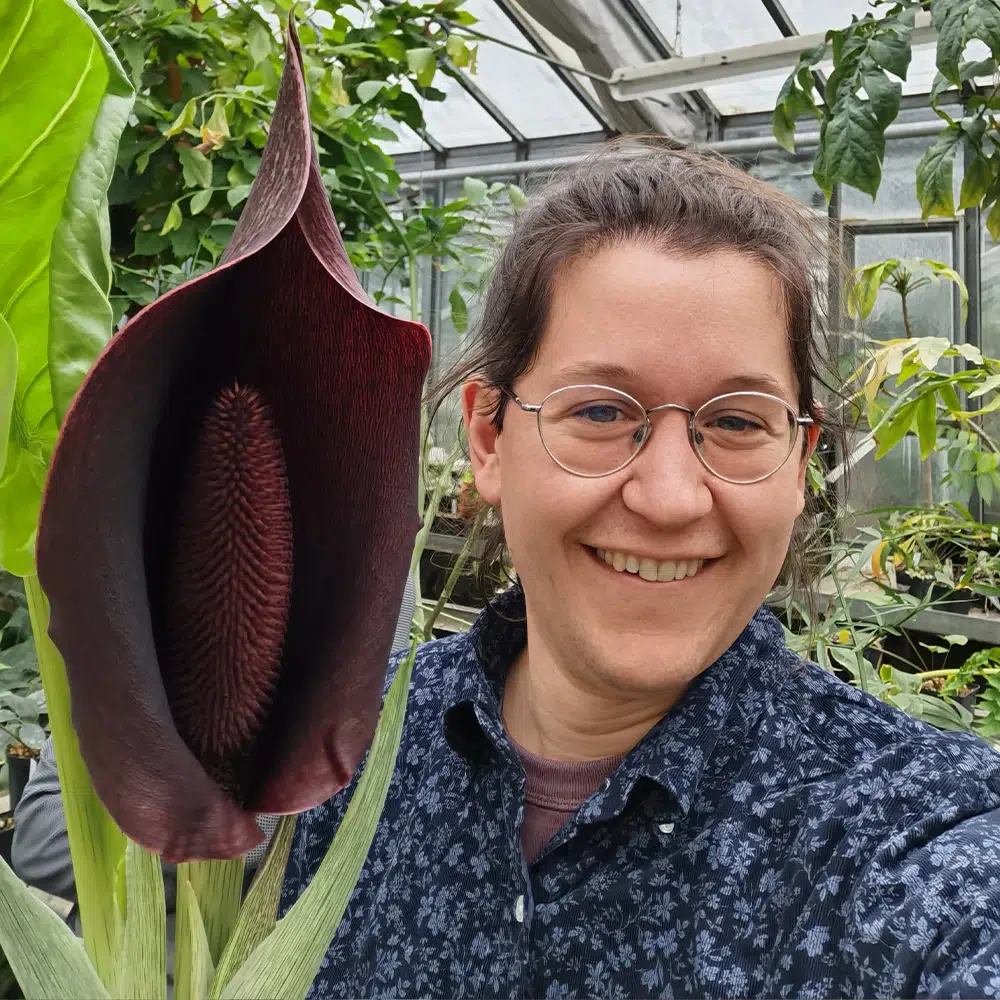
Andreas Berger is a botanist and curator of the herbarium of the Natural History Museum Vienna, as well as a lecturer at the Department of Botany and Biodiversity Research at the University of Vienna. His research interests include collection-based biodiversity research, the history of botany, and the species-rich coffee family.









